






23/24 SEASON AT AMBASSADOR











APRIL 20, 2024



































SCAN






P1 Program
Cast, performances, who’s who, director’s notes and donors
6 In the Wings
Grammy-winning Kronos Quartet marks 50 years at UCLA’s Royce Hall; Ed Ruscha retrospective at LACMA; L.A. Opera and artist David Hockney team on Turandot
12 Read All About It!
Business books about the performing arts—by Music Center president/CEO Rachel Moore and consultant Aubrey Bergauer—aim to guide performers and companies to a fulfilling and rewarding future.
20 Haute Couture Interiors
Inspired by classical themes, pop culture and her experience in the fashion world, designer Julia Wong creates interiors that are both dramatic and timeless
24 Reimagined Authenticity
Chef/restaurateur Sujan Sarkar showcases a playful, contemporary approach to India’s flavors and techniques at his Baar Baar downtown.
32 Parting Thought
Performances’ new program platform for shows and concerts can be accessed from any digital device.








PUBLISHER
Jeff Levy
EDITOR
Benjamin Epstein
ART DIRE CTOR
Carol Wakano
CONTIBUTING WRITERS
Roger Grody, Libby Slate, Caleb Wachs
PRODUCTION MANAGER
Glenda Mendez
PRODUCTION ARTIST
Diana Gonzalez
ADVERTISING DIRECTOR
Walter Lewis
ACCOUNT DIRE CTORS
Kerry Baggett, Jean Greene, Tina Marie Smith
CIRCULATION MANAGER
Christine Noriega-Roessler
BUSINESS MANAGER
Leanne Killian Riggar
MARKETING/ PRODUCTION MANAGER
Dawn Kiko Cheng
DIGITAL PROGRAM MANAGER
Audrey Duncan Welch
DIGITAL MANAGER
Lorenzo Dela Rama
Contact Us
ADVERTISING
Walter.Lewis@ CaliforniaMediaGroup.com
WEBSITE
Lorenzo.DelaRama@ CaliforniaMediaGroup.com
CIRCULATION
Christine.Roessler@ CaliforniaMediaGroup.com
HONORARY PRESIDENT
Ted Levy
For information about advertising and rates contact California Media Group 3679 Motor Ave., Suite 300 Los Angeles, CA 90034
Phone: 310.280.2880
Fax: 310.280.2890
Visit Performances Magazine online at socalpulse.com
Performances Magazine is published by California Media Group to
© 2024 California Media Group.
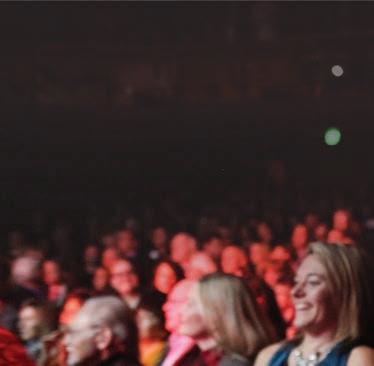
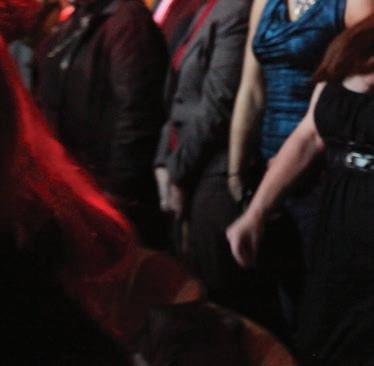

Congrats, You’ve Picked a Great Performance!

Check out the interactive version of this theater program magazine and enjoy even more insight into the performers, creative talent and theater activities that are behind it all.





LINKS TO PERFORMERS’ SOCIAL MEDIA ACCOUNTS UNDERSTUDY UPDATES

MULTI - MEDIA PRESENTATIONS ABOUT THE PERFORMANCE.
THEATER SUPPORT OPPORTUNITIES INSIDER SCOOPS FROM THEATER AND MUSIC PROFESSIONALS
UPCOMING SHOWS AND CONCERTS AROUND TOWN



It’s the new way to read the program, it’s
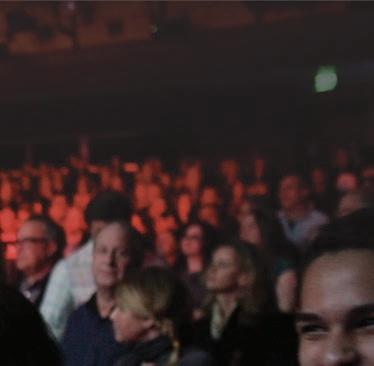




EVER-EVOLVING, multi-Grammywinning Kronos Quartet marks 50 years of innovation with Kronos: Five Decades, April 28 at UCLA’s Royce Hall; it’s one of 50 events commemorating the milestone. “No one is ever going to say that Kronos Quartet is satisfied with the string quartet status quo,” writes The New York Times. The ground-breaking group “has, in its malleable virtuosity, become a wellspring for hundreds of new music commissions.” Other sources count well over 1,000 new works and collaborations with composers and musicians that challenge perceptions of the string quartet. Founded by violinist David Harrington in 1973, the ensemble also features violinist John Sherba, violist Hank Dutt and cellist Paul Wiancko. Over the years, the foursome has built a repertory that explores a broad spectrum of cultural expression and consistently responds to issues of the time; Sherba and Dutt retire in June. The CAP UCLA program features original compositions and new commissions as well as fan-favorite standards. 10745 Dickson Court, L.A., 310.794.4041, ucla.evenue.net



ED RUSCHA has consistently held up a mirror to American society by transforming some of its defining attributes—from consumer culture and popular entertainment to the ever-changing urban landscape—into the very subject of his art. Ruscha left Oklahoma City in 1956 to study commercial art in Los Angeles, where he drew inspiration from the city’s architectural landscape and colloquial language. Ed Ruscha / Now Then, his first comprehensive cross-media retrospective in more than 20 years, traces Ruscha’s methods and subjects throughout his career and underscores his remarkable contributions beyond the art world. The exhibition includes early works produced while traveling in Europe, installations such as the Chocolate Room and Course of Empire presented at the Venice Biennale in 1970 and 2005, respectively—and photographic documentation of the streets of L.A. beginning in 1965. 5905 Wilshire Blvd., L.A., 323.857.6000, lacma.org



 EDWARD RUSCHA, HOLLYWOOD , 1968
EDWARD RUSCHA, HOLLYWOOD , 1968

GIACOMO PUCCINI’S FINAL opera, Turandot, is back on the L.A. opera stage after more than two decades; the fantastical production, new to Los Angeles, is designed by David Hockney. Based on an epic fairy tale set in a legendary Peking, China, the story centers on a princess who will only marry a man who can solve
her three riddles; all who fail must die, and many have perished trying. Now a prince on the run in enemy territory risks his life to win over the captivating beauty—then faces the even greater challenge of melting her icy heart. Angela Meade takes on the iconic title role. Russell Thomas— singing one of opera’s best known
tenor arias, “Nessun dorma”—plays her fearless suitor. Guanqun Yu is the woman who demonstrates the true meaning of devotion. Six performances take place May 18 to June 8 at Dorothy Chandler Pavilion; music director James Conlon conducts. The Music Center, 135 N. Grand Ave., downtown, 213.972.8001, laopera.org






































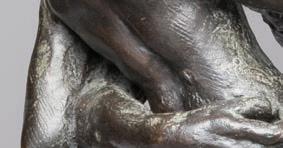


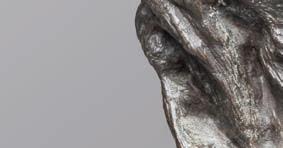



















 Run
Run



SOME YEARS AGO, for a book on the topic, Renee Fleming was asked to advise aspiring performers about a career in the arts.
The lauded singer—who returns to Dorothy Chandler Pavilion downtown in June for an L.A. Opera recital —addressed technique and artistry but added: “I would suggest taking courses in digital editing and website creation, personal finance and even general business
and marketing. Learning the business side of the arts is crucial.”
The book to which Fleming contributed is The Artist’s Compass: The Complete Guide to Building a Life and a Living in the Performing Arts, written by Rachel S. Moore, president and CEO of the Music Center. Published in 2016 by Touchstone and available online, the book is one of a handful of tomes focusing on the business side of the arts, designed to help those involved navigate the various challenges of arts careers and companies.
Published in February by BenBella
Books was Run It Like a Business: Strategies for Arts Organizations to Increase Audiences, Remain Relevant, and Multiply Money—Without Losing the Art by Aubrey Bergauer. Scheduled for publication this summer, undergoing revision at press time, is Champions for the Arts: Lessons and Successful Strategies for Engaging Diverse Audiences by Donna Walker-Kuhne.
Moore, a former American Ballet Theatre corps dancer who went on to become ABT’s executive director and then its CEO, wrote the book because, she says, “When I was a
young performer, and I moved to New York, I felt really lost. I felt like there were all these rules and things I didn’t know. And I never wanted another young artist to feel quite so lost.
“There just didn’t seem to be a primer out there that was straightforward, for people who were starting out.”
The Artist’s Compass draws on Moore’s experience as an artist and administrator, pointing the way for performers to assess strengths and set goals, choose schools, network, self-promote, find representation and give interviews, and learn about budgeting and other financial matters, intellectual property and copyright.
Eight years after

publication, technology and social media have resulted in some changes, but most of its content remains relevant, such

It’s important “to understand that being a star is not the point. To have a sustainable career, it’s about how you’re able to live this vision that you have, or make sure that you have these gifts to give. It’s not about your name in lights.”
as finding one’s personal vision, artistic mission and definition of success.
“Why do you feel like you have something special to give to the world? Why do you think others would find it compelling? I think that’s a really important thing for an artist” to consider, Moore says.
“As is trying to understand that being a star is not the point,” she continues. “To have a sustainable career, it’s about how you’re able to live this vision that you have, or make sure that you have these gifts to give.
“It’s not about your name in lights.”
Much of Moore’s advice is useful for anyone, whatever the chosen path.
“No matter who you are, you’re going to face rejection and tough times,” she points out. “We all have our doubts, we have our down days, our days when we don’t feel like we’re being treated with respect or that our contributions are valued.
“We all need to figure out how to manage through, and then get up the next day and put your foot forward and keep aimed at the right stuff.”
The arts are very much
a business, Moore says— “There’s a reason they call it showbiz,” she notes— and that thesis forms the basis as well for much of Aubrey Bergauer’s career as a consultant, coach and speaker.
A former arts administrator herself—Bergauer was executive director of the Bay Area’s California Symphony for five years and audience development and online media manager of Seattle Opera—she has parlayed her knowledge and experience to work with clients throughout the U.S. and internationally. Local clients have included L.A. Opera, the Pacific Symphony and Santa Barbara Symphony.
Her book, Run It Like a Business, shares proven methods for applying principles of for-profit companies such as Apple, Netflix and Peleton to nonprofit arts organizations in order to increase audience engagement, revenue and donor base.
“As an industry, we’ve misidentified the problem and the solution as the product, the art itself,” says the San Franciscobased Bergauer, who grew up playing classical tuba and knew she wanted to be an arts administrator as a teen. “We have collectively
/CONTINUED ON PAGE 28



Michael Feinstein Principal Pops Conductor

Harlem Nights: Duke, Ella and the Legacy of the Harlem Renaissance JUNE 29, 2024
A tribute to the explosion of music in 1920s New York that gave birth to the Jazz Age, Swing Era and beyond.


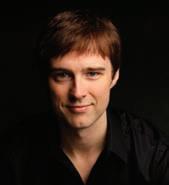
Michael Cavanaugh
Singer Songwriters: AUGUST 10, 2024
Cavanaugh returns for a night of sing-along favorites with the music of Paul Simon, James Taylor and Neil Diamond.

The Concert: A Tribute To ABBA JULY 13, 2024
The premiere ABBA tribute brings you “Mamma Mia,” “S.O.S.,” “Dancing Queen,” “Waterloo” and much more.

Michael Feinstein
Sings Tony Bennett & Frank Sinatra
JU LY 27, 2024
“The Best is Yet to Come” for an evening of timeless hits and behind-the-music stories that only Feinstein can deliver.

California Dreamin’ AUGUST 24, 2 024
Music that shaped a state of mind from Chet Baker’s West Coast Jazz and the Latin sounds of Carmen Miranda and Santana to the Beach Boys and the Mamas and the Papas.

Oscar Meets Tony SEPTEMBER 7, 2024
Award-winning music from stage and screen with Oklahoma, Gigi, Wicked, Chicago and composers Henry Mancini, Alan Menken and more.
| 626.793.7172



For over five decades, the Pasadena Symphony’s nationally-recognized Youth Orchestra (PYSO) has offered outstanding musical training and personal development for over 700 students grades 4-12 from 29 cities and 85 schools. We provide weekly instruction in public school classrooms with expert musicians who also teach and nurture students in 11 after school performance ensembles ranging from beginning strings to full symphony orchestras. Our goal is to give all children access to the competitive edge that music education can provide as a powerful life-building tool.
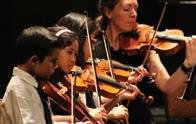




*Newly added ensembles as part of our expansion
A tuition-free after school initiative started in 2012 for grades 3-6 in the Pasadena Unified School District. Students learn beginning winds, brass and strings in small group ensembles.
Prelude Strings*
A beginning-intermediate level all strings ensemble for grades 5-7. Students build their foundational skills of technical proficiency, listening and teamwork in large ensembles.
Wind Ensemble
An intermediate level winds/brass/percussion ensemble for grades 6-9 teaching fun and challenging repertoire, providing a strong foundation for full orchestra ensemble playing.
String Orchestra
An intermediate level all-string ensemble for grades 6-9 that teaches technical proficiency, providing a strong foundation for full orchestra ensemble playing.

Symphony


Overture Strings*
An intermediate level allstring ensemble for grades 6-9 providing a bridge between String Orchestra and Symphony.
An advanced middle/high school level ensemble of strings, winds, brass and percussion, PYSO symphony is a student's first introduction to performing in a full symphony orchestra with a fun and challenging curriculum.
An advanced level full symphony for middle and high school grades learning standard orchestral repertoire. Students may remain in this ensemble through their senior year while others may advance into the Philharmonic.
Sinfonia* Philharmonic
Our premier level full symphony orchestra, comprised of the most advanced students performing major symphonic works.


Before your concert and during intermission, enjoy our outdoor tented lounge for fine wines, coffee, sparkling conversation and uniquely prepared menus for each performance.




Proudly presents an array of wonderful California and Imported wine from around the world, available at Pasadena Symphony beverage centers.


•
•
•
•













Welcome to the Pasadena Symphony’s 23/24 Symphony Series, our landmark celebration of Classical music’s greatest hits! I am thrilled to have joined the Pasadena Symphony and POPS as your new CEO and am equally excited to share with you this vibrant season of virtuosic guest soloists, our incredibly talented orchestra, and the gifted conductors serving as our Artistic Partners this year, as we search for our next Music Director.
There is a sense of electricity in the air, as our Artistic Partners have curated many of your all-time favorite works alongside pieces from inspiring new voices including Mason Bates, Jessie Montgomery, Shawn Okpebholo and more, as part of our Composer’s Showcase. We are particularly honored that our November 18th performances of Patrick Harlin’s Earthrise with Rachmaninoff and Elgar are part of the statewide California Festival: A Celebration of New Music. A large part of what attracted me to this organization is its deep commitment to arts education and the community as embodied by the Pasadena Youth Symphony Orchestras, serving more than 700 young musicians in grades 4 – 12 from 84 schools, across 29 cities throughout the San Gabriel Valley, and by welcoming our guests attending this concert through our Student Access Program. A highlight of our community outreach initiatives, this program annually provides more than 3,000 young people and their families the opportunity to attend a Pasadena Symphony and POPS concert, at no cost.
Thank you for joining us and for continuing to make live music a priority in your lives. I have already been so warmly welcomed by so many, and I look forward to getting to know more of you and learning about your own deep connections to this dynamic organization. Thank you for supporting the Pasadena Symphony!
Cheers!



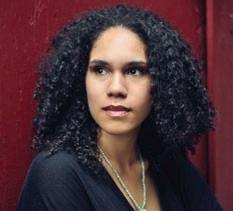

We proudly present our fourth annual class of seasoned and emerging living artists in our COMPOSERS SHOWCASE, with today’s best and brightest talent featured on each concert. Meet our composers…these superstars are shaping the future of classical music.
Composer of the Grammy®winning opera The (R)evolution of Steve Jobs
The first composer-in-residence of the Kennedy Center, Mason Bates is transforming the way classical music is created and experienced as a composer, DJ and curator. His music is the first to receive widespread accolades for its unique integration of symphonic and electronic sounds, and he was named the most-performed composer of his generation in a recent survey of American music. Bates has also composed for feature film, including Gus Van Sant’s The Sea of Trees and the Grammy® Award-winning Philharmonia Fantastique, and serves on the faculty of the San Francisco Conservatory of Music.
Patrick Harlin’s “aesthetics capture a sense of tradition and innovation” — New York Times Harlin’s music is permeated by classical, jazz and electronic music traditions, all underpinned with a love and respect for the great outdoors. His interdisciplinary research in soundscape ecology—a field that aims to better understand ecosystems through sound—has taken him to imperiled regions around the world, including the Amazon rain forest and the Book Cliffs of Utah. His work has been supported by several fellowships and awards, resulting in an ongoing body of works called The
Wilderness Anthology. Patrick is currently an adjunct faculty member at the University of Michigan.
“smart and fun” (TimeOut Chicago), Hunt’s “songs are creative crowd-pleasers.” (Chicago Reader)
Jessica Hunt’s music has been commissioned by orchestras including the Philadelphia Orchestra, the Ann Arbor Symphony Orchestra, and Detroit Chamber Winds among others. Her eclectic works explore the aural and syntactical intersections between theatre, narrative, sound, truth and fiction. Hunt was named the 2018 Boontling Community Fellow at the Gabriela Lena Frank Creative Academy and currently serves as an Assistant Professor of Music Theory at The Peabody Institute of The Johns Hopkins University.
“turbulent, wildly colorful and exploding with life.”
— The Washington Post
Jessie’s upbringing in 1980’s Lower East Side Manhattan exposed her to activist rallies and art performances that uniquely informed her artistry. Her work merges composing, performance, education and advocacy, and her music interweaves classical with elements of vernacular music, improvisation, language and social justice. She was a two-time laureate

of the annual Sphinx Competition, serves as composer-in-residence for the Sphinx Virtuosi, and is the recipient of the Leonard Bernstein Award from the ASCAP Foundation.
“devastatingly beautiful” and “fresh and new and fearless”
— The Washington Post
Grammy®-nominated composer Okpebholo’s music has been featured on PBS Newshour and radio broadcasts nationwide including NPR’s All Things Considered and Morning Edition His work has won many awards, including The Academy of Arts and Letters Walter Hinrichsen Award, the Barlow Endowment for Music Composition, First Place in the 2020 American Prize in Composition and NPR selected his art song The Rainas as one of the 100 Best Songs of 2021. His compositional and research interests have been a gateway for ethnomusicological fieldwork in East and West Africa.
Chen’s work emphasizes the use of timbre and the exploration of various compositional approaches. His works have been performed by orchestras worldwide and have won many awards. A graduate from the Central Conservatory of Music in Beijing, Si-ang Chen is currently an associate professor of composition at the Xinghai Conservatory of Music.

Conductor’s Circle Sponsor

Individual Concert Sponsor:
Barbara & William Steinwedell
Saturday, February 17, 2024 | 2pm & 8pm
Kyle Dickson, conductor
Wynona Wang, piano
JESSIE MONTGOMERY Strum for String Orchestra
TCHAIKOVSKY Piano Concerto No. 1 in B-flat minor, Op. 23
Allegro non troppo e molto maestoso
Andantino simplice
Allegro con fuoco
SIBELIU S Symphony No. 2 in D Major, Op. 43
Allegretto
Andante, ma rubato
Vivacissimo
Finale (Allegro Moderato)


 As a courtesy to the audience and performers, please silence or power off all cell phones, signal watches and other audible alarm devices. Photography (no flash) is permitted. Recording devices are strictly prohibited.
As a courtesy to the audience and performers, please silence or power off all cell phones, signal watches and other audible alarm devices. Photography (no flash) is permitted. Recording devices are strictly prohibited.
Insights SponsorWine Sponsor

Individual Concert Sponsor:
Hotel Sponsor 2023-24
The Michero Family
Marlene R. Konnar & John D. Baldeschwieler
Beethoven Violin Concerto
Saturday, March 23, 2024 | 2pm & 8pm
François López-Ferrer, conductor Francisco Fullana, violin
SHAWN OKPEBHOLO
S TRAVINSKY

BEE THOVEN
Kutimbua Kivumbi (Stomp the Dust!) for Orchestra
Suite from The Firebird (1919)
Introduction - The Firebird and Its DanceThe Firebird Variation
The Princesses’ Khorovad (Round Dance)
Infernal Dance of All Kaschei’s Subjects
Lullaby (Berceuse)
Finale
Concerto for Violin and Orchestra in D Major, Op. 61 Allegro ma non troppo
Larghetto
Rondo

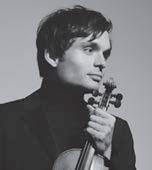
 As a courtesy to the audience and performers, please silence or power off all cell phones, signal watches and other audible alarm devices. Photography (no flash) is permitted. Recording devices are strictly prohibited.
As a courtesy to the audience and performers, please silence or power off all cell phones, signal watches and other audible alarm devices. Photography (no flash) is permitted. Recording devices are strictly prohibited.
Conductor’s Circle Sponsor

Individual Concert Sponsor:
Shadi & Jennifer Sanbar
Vivaldi Four Seasons
Saturday, April 20, 2024 | 2pm & 8pm
Linhan Cui, conductor
Charlotte Marckx, violin
BACH Brandenburg Concerto No. 3 in G Major, BWV 1048 1048
Allegro
Adagio
Allegro
SI-ANG CHEN Symphony No. 1 “Expedition” II. Adagio Affettivo
PUCCINI I Crisantemi (The Chrysanthemums) INTERMISSION
VIVALDI
The Four Seasons
Concerto No. 1 in E major, Op. 8, RV 269, “La primavera” (Spring)
Allegro
Largo e pianissimo
Allegro
Concerto No. 2 in G minor, Op. 8, RV 315, “L’estate” (Summer)
Allegro ma non molto
Adagio
Presto
Concerto No. 3 in F major, Op. 8, RV 293, “L’autunno” (Autumn)
Allegro
Adagio molto
Allegro
Concerto No. 4 in F minor, Op. 8, RV 297, “L’inverno” (Winter)
Allegro non molto
Largo
Allegro



Kyle Dickson is quickly building a reputation as an innovative and compelling presence on the podium. Recipient of the 2021 GPMF Advocate for Arts Award, he is a Salonen Conducting Fellow with the San Francisco Symphony under the guidance of Music Director Esa-Pekka Salonen. In 2021 he became the recipient of the Concert Artists Guild Richard S. Weinert Award. Dickson is assistant conductor of the Inner City Youth Orchestra of Los Angeles and previously served as Music Director of Chicago’s South Loop Symphony. He was a conducting fellow at the 2021 National Orchestral Institute’s Conducting Academy with Marin Alsop and James Ross, and from 2019 to 2021 was a Project Inclusion Freeman Conducting Fellow with Chicago. In 2020, he was selected as assistant conductor of Spoleto Festival USA for the world premiere of Rhiannon Giddens and Michael Abels’s opera Omar Mr. Dickson began his career as a violinist and was a prizewinner at the 2010 NANM National Concerto Competition. In 2021, he earned his master’s degree in orchestral conducting from Northwestern University studying with Victor Yampolsky, and also received degrees in violin performance from Michigan State and DePaul Universities.
Pianist Wynona Wang was selected as First Prize winner of the 2018 Concert Artists Guild International Competition and of the 2017 Wideman International Piano Competition in Louisiana. Wynona also received the 2019 “Charlotte White” Career Grant awarded by the Salon de Virtuosi in New York City. An active performer worldwide,
Wynona’s recent North American festival performances include PianoTexas, Morningside Music Bridge in Calgary, Canada, and the Chautauqua Institution. Internationally, Wynona has been a featured soloist with the Academic Symphony Orchestra of the National Philharmonic Society of Ukraine, and the Romanian Mihail Jora Philharmonic Orchestra in Italy. She has also given numerous solo piano recitals in Madrid, Jakarta and throughout China.
Born in Beijing, Wang began playing piano at age four, and went on to study at the prestigious Central Conservatory of Music (CCOM) in Beijing. She now lives in New York, NY while pursuing her undergraduate degree at Juilliard as a student of Dr. Robert McDonald.
Spanish-American conductor François López-Ferrer came to international attention after a critically acclaimed debut at the 2018 Verbier Festival, where he jumped in for Iván Fischer in a shared program with Sir Simon Rattle and Gébor Takécs-Nagy. In demand as a guest conductor, López-Ferrer’s recent highlights include debuts with the Los Angeles Philharmonic, Orquesta Nacional de España, Cincinnati Symphony Orchestra and Orquesta Sinfónica de Galicia, among others.
López-Ferrer is one of six participants to be featured in the 2022 Bruno Walter National Conductor Preview with the Louisiana Philharmonic Orchestra. He previously served as Associate Conductor of the Orquesta Sinfónica Nacional de Chile (OSNCH), Principal Conductor of the Ballet Nacional Chileno, and was the youngest ever Conductor-in-Residence of the OSNCH’s Summer Concert Series.
Spanish-born violinist Francisco Fullana, has been hailed as an “amazing talent” (Gustavo Dudamel) and “frighteningly awesome” (Buffalo News). His versatility as a performer has brought him to perform with ensembles across the artistic spectrum, from major orchestras including Vancouver, Aachen, Pacific and Buffalo Symphony Orchestras, to the new music driven Metropolis Ensemble and the baroque ensemble Apollo’s Fire, where he served as artist-inresidence. He has won numerous prestigious awards including the 2018 Avery Fisher Career Grant. Francisco is a committed innovator, leading new institutions of musical education for young people. He is co-founder of San Antonio’s Classical Music Summer Institute, where he currently serves as Chamber Music Director. He also created the Fortissimo Youth Initiative, a series of music seminars and performances with youth orchestras, which aims to deepen young musicians’ understanding of 18th-century music.
Francisco is a graduate of the Royal Conservatory of Madrid, received Bachelor’s and Master’s degrees from Juilliard studying with Donald Weilerstein and Masao Kawasaki, and holds an Artist Diploma from the USC Thornton School of Music, where he worked with the renowned violinist Midori. Fullana performs on the 1735 “Mary Portman” ex-Kreisler Guarneri del Gesù violin, kindly on loan from Clement and Karen Arrison through the Stradivari Society of Chicago.
Conductor Linhan Cui has established herself as a soughtafter artist who recently won
second prize in the Malko International Conducting Competition. With natural expressivity at the core of her work, she has performed with the Baltimore Symphony Orchestra, Danish National Symphony Orchestra and the Korean Symphony Orchestra, among others. As an Assistant Conductor, Linhan has worked with many world-renowned maestros including Leon Fleisher and Xian Zhang.
Linhan was Gustavo Dudamel’s Conducting Fellow for the 20222023 season, performing with the Los Angeles Philharmonic. During the 2019-2020 season, she was appointed Conducting Fellow by the Baltimore Symphony Orchestra where she had the privilege of serving as Marin Alsop’s cover conductor.
Cui was born in Shenyang, China and began her piano study at the age of four. She started conducting at age 18 when she was the only accepted student at the Xinghai Conservatory, China. She holds a Master of Music degree from the Peabody Conservatory and is currently pursuing doctoral studies in orchestral conducting at the Indiana University Jacobs School of Music, under the guidance of Arthur Fagen.
Charlotte Marckx
VIOLIN
Violinist Charlotte Marckx was a 2019 Davidson Fellowship Laureate and is a Jack Kent Cooke College Scholar. She won the Gold Medal and Bach Prize at the 2018 Stulberg International Competition and was a major prizewinner at the 2018 Johansen International Competition. Originally from the Seattle area, Ms. Marckx has won the KING FM Young Artists Awards and the Seattle Young Artists Music Festival Concerto Competition. Ms. Marckx has soloed with many orchestras, including the Seattle
Symphony, Baltimore Chamber Orchestra, and Kalamazoo Symphony, and has performed with the Seattle Chamber Music Society, Orcas Island Chamber Music Festival, and Colburn Chamber Music Society. She has also been featured on NPR’s From the Top and in Strings magazine. Charlotte is currently a student at the Colburn Conservatory, where she studies with renowned pedagogue Robert Lipsett. In the summers, Ms. Marckx continues her studies with Mr. Lipsett at the Aspen Music Festival and Sounding Point Academy.
Piano Concerto No. 1
February 17, 2024
Strum
Jessie Montgomery b. 1981
Jessie Montgomery composed Strum in 2006 for string quartet and revised it in 2012 for string orchestra for the Sphinx Organization. The work was featured on The Black Composer Speaks concert series by Fulcrum Point New Music Project, which explores different voices within the generations of Black American composers, ranging from impressionistic to popinspired minimalism to free jazz improv.
Complex pizzicato lines on all instruments, sometimes as complex as in a Bartok quartet, other times recalling banjo strumming, provide a rhythmic base upon which Montgomery hangs bursts of fiddle music.
A review of her debut album, Strum, Music for Strings, exemplifies Montgomery’s dedication to Sphinx’s founding principles. “The album combines classical chamber music with
elements of folk music, spirituals, improvisation, poetry and politics, crafting a unique and insightful new-music perspective on the cross-cultural intersections of American history.”
Piano Concerto No. 1 in B-flat minor, Op. 23
Pyotr Ilyich Tchaikovsky 1840-1893
It is ironic that Tchaikovsky’s two most popular works, the First Piano Concerto and the Violin Concerto, were initially rejected by the greatest virtuosi of his country as unplayable fiascos. “...Utterly worthless, absolutely unplayable. Certain passages are so commonplace and awkward they could not be improved, and the piece as a whole was bad, trivial, vulgar.” This was the verdict of Nikolay Rubinstein, first director of the Moscow Conservatory and one of Tchaikovsky’s mentors, on hearing the composer play his new Piano Concerto on Christmas Eve 1874. The tirade raised Tchaikovsky’s hackles, and he refused to change a single note (although in later editions he made some minor modifications).
But with Rubinstein’s negative opinion, he had little chance of mounting a respectable performance with an unbiased reception in Russia. What has come to be the most popular piano concerto by Russia’s most popular composer was premiered in Boston on October 25 1875, with a pick-up orchestra and famed pianist Hans von Bülow, where it was a smashing success. The First Piano Concerto came relatively early in Tchaikovsky’s career and it was a personal triumph that he managed to withstand Rubinstein’s vicious assault.
Although the majestic introduction has become so well-known as to be recognizable
even to people unfamiliar with classical music, it was revolutionary for its time. It remains unlike any standard introduction in the orchestral repertory, replete with a fully developed theme and a cadenza
Introduced by a soft chordal transition, the exposition begins with a melody Tchaikovsky allegedly heard a blind beggar sing at a country fair, but this theme too is hardly touched on again. The two following themes, one for the winds, the other for the strings, become more important for the movement as a whole. The long cadenza is unusually restrained, a fine vehicle for highlighting the pianist’s control of pianissimo. The second movement opens with a gentle theme on the flute, accompanied by muted strings. The theme is then taken up by the piano with just a single note change. Instead of maintaining the tempo for the middle section of the slow movement, Tchaikovsky quixotically launches into a cadenza of pianistic pyrotechnics as a lead-in to a melody based on a popular cabaret song of the time.
In the rondo finale Tchaikovsky again uses a folk tune in triple meter, but with the accent always on the second beat. As momentum towards the climax builds, the violins sneak in a hint of the main theme of the first movement. In place of a formal solo cadenza, an excited coda with lavish pianistic flourishes concludes the Concerto.
It is probably fair to ask why this Concerto is such a popular competition piece. In keeping with the composer’s tumultuous emotional life, it requires of the performer a mastery of just about every artistic and technical resource: rapid passages in octaves, abrupt changes in mood, delicate passages of arpeggiated filigree, giant buildups of harmonic and emotional tension,
whispered legato pianissimos. Is it any wonder Rubinstein overreacted?
Symphony No. 2 in D Major, Op. 43
Jean Sibelius 1865-1957
Sweden relinquished Finland to the Russian Empire in 1809, where it became an autonomous duchy with significant control over its own affairs. Beginning in 1870, however, these privileges were gradually taken away under the program of “Russifying” the many ethnic minorities within the Russian Empire. While Swedish had been the language of the educated middle class, Russian repression aroused such strong nationalist feelings that it sparked a revival of the Finnish language. Jean Sibelius was born into this nationalistic environment and in 1876 enrolled in the first grammar school to teach in Finnish.
Sibelius was by no means a child prodigy. He started playing piano at nine, didn’t like it and took up the violin at 14. He began toying with composition as early as ten, but his ambition was to become a concert violinist and all his life he regretted not following his dream. His first success as a composer came in 1892 with Kullervo, Op. 7, a nationalistic symphonic poem/cantata that met with great success but was never again performed in his lifetime. During the next six years he composed numerous nationalistic pageants, symphonic poems and vocal works, mostly based on the Finnish national epic, the Kalevala. In order to enable him to work undisturbed, the Finnish government gave him a pension for life in 1897. For the next 28 years he composed the symphonies and tone poems that made him famous. But in 1925, at the age of 60, he essentially abandoned composing probably as the result of the ravages
of alcoholism and the bipolar disorder that had plagued him throughout his life. He remained silent until his death 32 years later.
Writing symphonies was for Sibelius a lifelong preoccupation that he described as “confessions of faith from different periods of my life.” Composed in the winter 1901-02, close on the heels of his patriotic Finlandia, Symphony No. 2, with its blazingly affirmative conclusion and optimism, reflected the nationalistic spirit of the time. His statement that all his music was either consciously or unconsciously programmatic opened up a Pandora’s box for interpretation. The public’s belief that the Symphony contained a fundamental political message made it an instant success despite the fact that Sibelius himself ascribed no program to it. The first movement opens with a lyrical theme by a pair of oboes in their middle range accompanied by the lower strings, creating the dark, cold sound characteristic of Sibelius, which hints at the stark Finnish climate and landscape. The movement consists of a string of melodic fragments, rather than full themes, woven together into a classic sonata form.
A timpani roll and a long pizzicato passage on the basses open the second movement, spiraling higher and higher, preparatory to a stark Russiansounding theme for the bassoons. It creates an even more desolate sound than the chilly oboes of the first movement. The ominous mood builds up to an outburst in the strings that has been interpreted as symbolic of Russian oppression.
The Scherzo for strings alone has a frantic quality about it, particularly in its irregularity of phrasing and refusal to settle on a tonic. The pace slows down considerably for the Trio, a
low oboe solo accompanied by winds. While the Trio begins on an emotionally neutral plane, it quickly adopts a plaintive mood that is taken up by the entire orchestra.
The Finale, which to its first audiences symbolized nationalistic triumph, is indeed both optimistic and grandiose, with heavy use of a trumpet fanfare motive. Like the first movement, it consists more of freely developed motives than full themes, but they are so frequently repeated as to be unforgettable even on first hearing.
Beethoven Violin Concerto
March 23, 2024
Kutimbua Kivumbi (Stomp the Dust!)
Shawn Okpebholo b. 1981
Shawn Okpebholo received his early music training at the Salvation Army Church, which made him passionate about music outreach to underserved communities. His interest in ethnomusicology has resulted in studies in East and West Africa, and Kutimbua Kivumbi is the result of a sabbatical in Kenya. He writes:
“...as a part of a sabbatical, I studied the music of the Akamba people in the Machakos region... The Machakos region, where I did most of my ethnomusicology study, has two short wet seasons, resulting in long dry spells throughout the year. Consequently, the terrain of the scenic plains in the low lands is extremely dusty. Many of the traditional songs and dances, especially the ones that plead for rain, are performed on the arid landscape, and as the people dance and stomp, dust rises, creating a beautiful and fascinating visual space.
In this piece, I tried to musically
create that unique atmosphere, using my own compositional voice and the inspired rhythms and sounds of the Akamba people. After a ferocious percussive invitation, the work begins with a violin solo, musically depicting the leader of a call-and-response, freely singing until the rest of the people join in and sing the synchronized tune. The primary theme of this piece is an adaptation of a welcome song that was performed for me by the Akamba people. The entire experience was moving: witnessing the drumming, the call-and-response singing, the dancing on the dry land, and, yes, watching the dust rise. The work culminates with a soundscape that musically depicts one final stomp, with dust slowly rising and gaining intensity—a final plea for rain.”
Suite from The Firebird
Igor Stravinsky 1882-1971
“He is a man on the eve of fame,” said Sergey Diaghilev, impresario of the famed Ballets Russes in Paris, during the rehearsals for Stravinsky’s The Firebird
In 1909 Stravinsky, a budding composer just emerging from the tutelage of Nikolay RimskyKorsakov, got what can be called his big break, thanks to the laziness of the composer Anatoly Lyadov. Early in the year Diaghilev had written Lyadov: “I am sending you a proposal. I need a ballet and a Russian one, since there is no such thing. There is Russian opera, Russian dance, Russian rhythm – but no Russian ballet. And that is precisely what I need to perform in May of the coming year in the Paris Grand Opera and in the huge Royal Drury Lane Theater in London…The libretto is ready… It was dreamed up by us all collectively. It is The Firebird – a ballet in one act and perhaps two scenes.” When Diaghilev heard that after three months Lyadov
had only progressed so far as buying music manuscript paper, he withdrew the commission and offered it to Aleksander Glazunov and Nikolay Tcherepnin, who both turned him down. In desperation he turned to the unknown Stravinsky.
Stravinsky finished the score in May 1910, in time for the premiere on June 25. It was an instant success and has remained Stravinsky’s most frequently performed work. Its romantic tone, lush orchestral colors, imaginative use of instruments and exciting rhythms outdid even Stravinsky’s teacher, the Russian master of orchestration RimskyKorsakov. It required an immense orchestra and the first suite Stravinsky extracted from the ballet in 1911 strained symphony orchestras’ resources. He made two subsequent revisions with modified orchestration; the final one in 1945.
The ballet takes its plot from bits of numerous Russian folk tales, telling the story of the heroic Tsarevich Ivan who, while wandering in an enchanted forest, encounters the magic firebird as it picks golden fruit from a silver tree. He traps the bird, but frees it as a token of goodwill. As a reward, the bird gives Ivan a flaming magic feather. At dawn the Tsarevich finds himself in a park near the castle of the evil magician Kashchey. Thirteen beautiful maidens, captives of Kashchey, come out of the castle to play in the garden, but one of them in particular, the beautiful Tsarevna, captures Ivan’s heart.
As the sun rises, the maidens have to return to their prison and the Tsarevna warns Ivan not to come near the castle lest he fall under the magician’s spell. In spite of the warning, the Tsarevich follows and opens the gate of the castle. With a huge crash Kashchey and his retinue of monsters erupts from the castle in a wild dance, whose drive and
clashing harmonies foreshadow The Rite of Spring. The Tsarevich uses the magic feather to call the Firebird who overcomes Kashchey and tames the monsters by lulling them to sleep. In the end the captives are freed from the spell and Tsarevich Ivan and the Tsarevna are married in a grand ceremony culminating in an apotheosis of the Firebird.
Violin Concerto in D Major, Op. 61
Ludwig van Beethoven 1770-1827
Despite the typically long gestation of his music, Beethoven could work fast when pressed. In a letter to his publisher in mid-November 1806 there is no mention of the Violin Concerto as work in progress, but on December 23 it was premiered by his friend Franz Clement, leader of the orchestra at the Theater an der Wien. As was common with Beethoven, he made continual changes in the manuscript after the premiere until publication in 1808, but the changes were mostly in detail and not in the fundamental conception of the work.
Clement was a formidable musician with a prodigious musical memory, lauded both for his technique and his impeccable intonation and musicianship. From manuscript sources it becomes clear that he tried to advise Beethoven on phrasing and the technical possibilities of the instrument, but that the composer took only some of his suggestions. In the Concerto Beethoven provided him with immense challenges, both technical and musical. In retrospect, it is clear that the Concerto was the first major violin concerto of the late Classical period, acting as a model for subsequent works of Felix Mendelssohn, Johannes Brahms and Max Bruch.
The premiere, however,m was not a success, nor did the work fare better the following year. The public simply didn’t get it. The turning point for the Concerto came in 1844, when 13-year-old Joseph Joachim performed it in London with the Philharmonic Society under Mendelssohn’s baton. For the occasion, the Society set aside its rule against the appearance of child prodigies. Joachim at 13 was considered a fully mature artist.
It is an amusing and educational exercise in virtual time travel to put oneself in the shoes of an audience who rejected a work of art that subsequently went on to be hailed as a masterpiece. So what did Beethoven’s audience object to in the Violin Concerto?
First of all, there is the sheer heft of the piece - even Mozart’s five violin concertos were significantly shorter and lightweight by comparison. Then there’s the opening - Beethoven was no newcomer to controversial openings. Was it the four repeated identical solo timpani beats that form part of the main theme that amazed Beethoven’s contemporaries? Haydn had done the same thing in the Symphony No. 103, the “Drum Roll,” but that was a symphony, not a violin concerto. At the fifth beat, the woodwinds, and particularly the oboe, chime in with a gentle melody, but the four notes return immediately, now a motto that carries over as a part of all of the subsequent themes.
The Concerto contains cadenzas for all three movements, and also many cadenza-like passages. Clement’s virtuosity and pinpoint accuracy of intonation inspired the composer to give special prominence to the high E-string. The soloist’s entrance in the first movement is a telling example, and passages in all three movements occupy the instrument’s stratosphere where even Vivaldi had seldom trod.
The second movement, Larghetto, is a chorale-like gentle theme with a set of four variations. The theme is not the standard sequence of two repeated strains. Rather, it is a long melody with no internal repeats. Moreover, the soloist doesn’t simply embellish the melody with increasingly acrobatic and elaborate decoration, but rather builds the emotional intensity. Near the end of the movement, Beethoven provides a section of new material and a short cadenza, leading without a break into the Rondo Finale. This, a lively bravura movement based on a dancing folk-like theme, is the technical counterbalance to the emotional intensity of the first two movements. Brahms was to imitate the ebullient good humor in the finale of his own Violin Concerto.
One other reason for the initial rejection of Beethoven’s Concerto resides in the violin concertos of the Classical period. Like Mozart’s five concerti, these were modest, albeit elegant, in their requirements of the soloist. Unlike 20th century music lovers who revere the music of centuries past more than contemporary music, the challenging Italian-style concerti of Vivaldi or Bach had long since become passé in 19th century Vienna. Beethoven was virtually reinventing the genre, setting the stage for a rash of challenging virtuoso violin works by such performer-composers as Niccoló Paganini that soon took Europe by storm.
Brandenburg Concerto No. 3 in G Major, BWV 1048
Johann Sebastian Bach 1685-1750
The six Brandenburg Concertos stand at the crossroads in musical history where chamber music and orchestral music went their
separate ways. Titled Concerts à plusieurs instruments (Concertos for various instruments), the set was dedicated to Christian Ludwig, Margrave of Brandenburg, who employed a modest orchestra that was in all probability too small and inexpert to play them. The Dedication Score, including Bach’s obsequious cover letter, has survived and now resides in the Deutsche Staatsbibliothek in Berlin. The mint condition of the manuscript indicates that the Margrave’s orchestra seldom if ever performed them.
Bach assembled the Concertos between 1718 and 1721, although parts may have been written as early as 1708, borrowed from various orchestral works that Bach had already written over the years as courtly entertainment music on the highest level. Such recycling was standard practice for overworked composers of the 17th and 18th centuries.
The Concerto No. 3 is a true ensemble work, as if composed for a group of friends spending a musical evening together. In its original form it interweaves three groups of strings, each one consisting of a violin, a viola and a cello, playing in turn the concertino (small group of instruments), and coming together to play the ripieno (all together). In other words, all nine musicians share in the solo parts equally. A harpsichord and a violone (a large viola da gamba), or double bass, fill out the continuo. In the last movement the violone joins the three cellos in unison throughout. The most unusual aspect of this concerto is the absence of a slow central movement. In its place Bach wrote a one-bar time signature plus two eighth-note chords. Some scholars think that the composer intended for one or two of the soloists to improvise the slow movement, ending with a cadence on the chords he specifically notated. The dedication score in the Deutsche
Staatsbibliothek in Berlin gives no clue as to Bach’s intentions.
The outer movements are essentially the spinning out and free variations on a single theme. The first movement roughly follows an ABA form with an excursion into the minor mode but no really new music for the B section. The third movement is literally a grand chase, full of Bach’s characteristic canons, involving all the instruments. It certainly puts the lie to the stereotype that canons are stuffy.
Symphony No. 1 “Expedition” II: Adagio Affettivo Si-ang Chen
Si-ang Chen’s Symphony No. 1 was premiered in September 2022 by the Guangzhou Symphony. The Adagio second movement, for strings and harp, is a gentle ebb and flow of sound, Late-Romantic, barely touched by the musical upheavals of the 20th century.
Translated from the score written by Si-ang Chen:
The entire piece uses the fourdegree ascending musical sequence as the main musical motif, which is continuously developed throughout the work. In the second movement, the musical theme of “Spring Breeze Prosperity” from Cantonese music is employed as the primary developmental element. The third movement utilizes the musical themes of “Hungry Horse Shaking Bells” and “Thunder in Dry Weather” from Cantonese music as the main developmental elements. The fourth movement integrates the main musical themes from the preceding three movements, creating a cohesive and unified composition with interconnected elements.
Sincerity and resilience are the core of the second movement. In this movement, the musical emotions of sincerity and unwavering resilience are used
to celebrate the greatness of mankind. The movement features the enchanting musical theme of “Spring Breeze Prosperity” from Cantonese music as the main developmental element throughout the entire movement. The second movement is performed by only the string orchestra and harp, requiring special attention to musical layers and texture. It is a movement filled with emotion and warmth.
I Crisantemi (The Chrysanthemums)
Giacomo Puccini 1858-1924
Like many opera composers of the Romantic era, including Donizetti and Verdi, Puccini rarely composed for instruments alone. His instrumental compositions are modest and seldom performed. Puccini composed Crisantemi in 1890 for string quartet, but it is frequently performed in an arrangement for string orchestra. It is a threnody composed in a hurry after the death of the Count of Savoy, a member of one of Italy’s oldest families. Shortly thereafter, Puccini reused the themes in his opera Manon Lescaut
Not surprisingly, Crisantemi is actually a da capo aria for strings. A solemn opening section with a murmuring ostinato accompaniment in the cello is followed by a more sentimental and slightly faster section. The piece ends with the return to the opening.
Antonio Vivaldi 1678-1741
Beginning in 1703 and intermittently for many decades, Antonio Vivaldi served as music factotum at the Pio Ospedale della Pietá in Venice, an institution devoted to the care and education of abandoned, orphaned and indigent girls – mostly “inconvenient” children of upperclass parents – with a special
emphasis on musical training. In addition to his duties as virtuoso violinist, violin teacher, orchestra director and instrument purchaser, Vivaldi served as resident composer, producing hundreds of works for various instruments and ensembles, including nearly 450 concerti, usually at a rate of more than two per month. The resident girls were trained in both string and wind instruments, including the organ, and as part of their training Vivaldi composed concertos for every instrument and instrument combination. Many of them were apparently written with specific girl soloists in mind.
Vivaldi saw to it that his music reached far beyond Venice, and around 1711 an Amsterdam firm issued his first published concertos as Opus 3, L’estro armonico, a set of 12 concertos, four each for one, two or four violins, and four with added cello. They are at the boundary between the old tradition of the Sonata da chiesa (church sonata) with its stately slow-fast-slowfast movements, and the newer three-movement concerto form (fast-slow-fast). L’estro armonico was a sensation, becoming the most influential music publication of the first half of the 18th century. J.S. Bach admired these works and transcribed some of them as harpsichord concertos.
The four concertos, known as The Four Seasons, are part of a group of eight violin concertos published in Amsterdam in 1725 as Op. 8. They are among the earliest examples of program music - Vivaldi provided sonnets in Venetian dialect, probably his own, to head each of the four concertos, marking with capital letters sections of the sonnets and their corresponding music.
It is clear from the detailed notes Vivaldi made on the score that he enjoyed composing these concertos as well as performing them.
Concerto in E major, Op. 8, No. 1, Spring
Setting the mood of the opening movement, the opening ritornello (recurrent phrase) is marked in the score “Spring has returned.”
The first violin solo is marked “Song of the birds,” while after a return of the ritornello, comes a soft murmuring on the violin. After the next ritornello comes the lightning and thunder, followed by an extensive return to the singing birds and gaiety.
The slow movement is a musical description of the snoozing goatherd, watched over by his dog, whose bark is imitated throughout the movement on the violas with repeated notes to be played “very loud and abruptly.”
The third movement, a rustic dance, opens with a suggestion of rustic bagpipes, complete with an imitation of their drones by sustained notes on the low strings.
Concerto in G minor, Op. 8, No. 2, Summer
The opening phrases droop in sympathy with the suffering people. Suddenly the violin depicts the singing of the birds. The zephyr’s voice is heard gently on the violins and violas, interrupted by the wind squalls depicted by rapid scales on the violins and bursts by the entire ensemble. A lonely violin solo describes the weeping shepherd’s apprehension of a coming storm.
In the second movement, the shepherd’s rest (solo violin) is interrupted repeatedly by his fear of distant thunder (strong tremolo by the whole orchestra). He tries to sleep again, but the gnats and flies (repeated dotted notes on the strings accompanying the solo violin) don’t let him rest.
The third movement describes the violent storm, justifying the shepherd’s fears. Darting scales in the violins describe the lightning while the cellos and basses portray thunder.
Concerto in F major, Op. 8, No. 3, Autumn
The concerto begins with the rhythmic dances and songs of the peasants, followed by uncertain lurches by the solo violin to depict their drunkenness, which gets wilder and wilder, alternating with the dance music. With a sudden shift to Larghetto, some of the revelers go to sleep while the dances continue. In the second movement, the muted strings become increasingly gentle as the slumber becomes deeper and deeper.
Violins imitate the hunting calls in the third movement. A wild melee in the orchestra describes the confusion of the hunt, the fleeing prey and its death, with the strings imitating the baying dogs.
Concerto in F minor, Op. 8, No. 4, Winter
The strings, with trills in the violins, describe the shivering in the winter cold. Swift arpeggios and scales by the solo violin describe the horrid wind, while a series of abrupt chords suggest stamping feet and running to get warm. But rapid tremolos show that all this activity is useless, since the teeth continue to chatter.
Violin pizzicatos depict the falling raindrops, after which a warm melody on the solo violin describes the pleasant indoors with its roaring fire.
The finale opens with sliding phrases by the violin - walking and slipping on thin ice. The orchestra joins with a slower rhythm to indicate the hesitant steps and fear of falling. But then we are back indoors, enjoying the warmth while the winds howl outside.
Program notes by:
Joseph & Elizabeth Kahn
Wordpros@mindspring.com
www.wordprosmusic.com
FIRST VIOLIN
Aimée Kreston
CONCERTMASTER
Paul & Georgianna Erskine Chair
Amy Hershberger
ASSOCIATE CONCERTMASTER
Elizabeth Hedman
ASSISTANT CONCERTMASTER
Aroussiak Baltaian
Chair endowed by Mr. & Mrs. Herbert
Hezlep III
Mei Chang
Sharon Harman
Carrie Kennedy
Nancy Roth
Neil Samples
Audrey Solomon*
Irina Voloshina
SECOND VIOLIN
Sara Parkins
PRINCIPAL
Chair endowed by
Barbara Mann Steinwedell
Florence Titmus
ASSISTANT PRINCIPAL
Sam Fischer
Pamela Gates
Chair endowed by Hazel B. Mason in memory of Albert W. Mason, Jr.
Joel Pargman
Rebecca Rutkowski
Hiromi Warren
Vivian Wolf
VIOLA
Andrew Picken
PRINCIPAL
Chair endowed by Marlene R. Konnar & John D. Baldeschwieler
Carrie Holzman-Little
ASSISTANT PRINCIPAL
OFFICERS
Kimberly S. Winick
PRESIDENT
Andrew Brown
CHIEF EXECUTIVE OFFICER
Sandford L. Frey
EXECUTIVE VICE PRESIDENT
Craig Colbath
VP INVESTMENT
Dr. Annette L. Ermshar
VP GOVERNANCE
Leslie Hockett Marble
SECRETARY
Greg Holcomb
VP COMMUNITYENGAGEMENT
Baird Marble
VP FINANCE
Maryam Shah-Hosseini
VP AUDIT
Barbara M. Steinwedell
VP DEVELOPMENT
Reggie Wilson
VP PERSONNEL
Robert Michero
PAST PRESIDENT
Shadi Sanbar
DIRECTOR AT LARGE
Priscilla McClure
DIRECTOR AT LARGE
Carole Castillo
Suzanna Giordano Gignac
Lynn Grants
Aaron Oltman
Qiang Wang
CELLO
Position Vacant
PRINCIPAL
Chair endowed in honor of Edith Roberts by her children and their spouses
Dane Little
ASSISTANT PRINCIPAL
Chair endowed by J. Richard Love in celebration of his high school music teacher, Rose Eneboe Steele
Trina Carey
Nadine Hall
Vahe Hayrikyan
Judith Henderson
Deborah Kollgaard
DOUBLE BASS
Drew Dembowski
PRINCIPAL
Chair endowed by Allan W. Fink in memory of Elvera Doctor Fink
Christian Kollgaard
ASSISTANT PRINCIPAL
Chair endowed by Lorian W. Stillion in memory of Ardell Stillion
Peter Doubrovsky
Lisa Gass
Frances Liu
FLUTE
Heather Clark
PRINCIPAL
C hair endowed by Bridget Emerson
Sarah Weisz
Chair endowed by Dr. & Mrs. John D. F. Tarr in memory of Edna Mae Tarr
PICCOLO
Geraldine Rotella
Chair endowed by Richard P. & Jane Roe
Pam Ackrich
Elizabeth Grossman Besch
Angel Chen
Carl Cooper
Dr. Alan Fisher
Jeff Hacker
Freddi Hill
Raymond Kepner
Judy Kolb
Clara Maarse
M. Brian McMahon
Stephen J. Miyabe
Steven T. Rosen
Anneila Sargent
Vicki Schwartz
OBOE
Lara Wickes
PRINCIPAL
Chair endowed by Mrs. Uric Bray in memory of Henri Debusscher Lisa Geering-Tomoff
ENGLISH HORN
Position Vacant
Chair endowed by Richard P. & Jane Roe
CLARINET
Donald Foster
PRINCIPAL
Chair endowed by Dr. George Housner
Philip O’Connor
Chair endowed by The Stans Foundation
BASS CLARINET
Position Vacant
BASSOON
Rose Corrigan
PRINCIPAL
Judith Farmer
CONTRABASSOON
Position Vacant
HORN
James Thatcher
PRINCIPAL
Chair endowed by Charles Pankow Builders Limited
Dan Kelley
Chair endowed by Mr. & Mrs. John H. Glanville Todd Miller
TRUMPET
Marissa Benedict
PRINCIPAL
Chair endowed by Dr. Clifford M. Hughes
Kevin Brown
Supervisor Kathryn Barger
Claud Beltran
Diane Blum
Congresswoman
Judy Chu
Alicia Garcia Clark
Don Clark
Anita B. Fromholz
Beth Hansen
Marlene R. Konnar
Linda L. Krantz
Ronald M. LaBran
Councilmember
Steven Madison
Greta Mandell
Brian McDermott
Susan Shieff
Dr. Linda Tolbert
Chelisa Vagim
Mindy L. Ying
TROMBONE
William Booth
PRINCIPAL Chair endowed by Mr. & Mrs. David Traitel
2nd Position Vacant
BASS TROMBONE
Terry Cravens
Chair endowed by Alice Marie Simon
TUBA
James Self
PRINCIPAL Chair endowed by Mr. & Mrs. J.C. Massar
HARP
JoAnn Turovsky
PRINCIPAL
Chair endowed by Mrs. Ulric Bray
PIANO/KEYBOARD
Alan Steinberger
PRINCIPAL Chair endowed by the family and friends of Dr. Nelson J. Leonard in honor of his 85th birthday
TIMPANI
Wade Culbreath
PRINCIPAL Chair endowed by Linda & William Krantz
PERCUSSION
Theresa Dimond
PRINCIPAL Chair endowed by Barbara Mann Steinwedell
Position Vacant
Jason Goodman
PERSONNEL MANAGER
Ryan Sweeney
LIBRARIAN
Brent Anderson
*on leave of absence
STAFF
Kevin Batton DEVELOPMENT ASSOCIATE
Dana Bean
INTERIM DIRECTOR OF DEVELOPMENT
Donald Brinegar
DIRECTOR OF CHORUSES
Pin Chen
PYSO SINFONIA CONDUCTOR
Alex Chu
DIRECTOR OF EDUCATION & COMMUNITY ENGAGEMENT
April Guthrie
PYSO ALL CITY ORCHESTRA STRINGS CONDUCTOR
Tim Harwick
DIRECTOR OF PATRON SERVICES & TICKETING
Chris Kim PYSO PHILHARMONIC CONDUCTOR
Michael Kramberg
DIRECTOR OF FINANCE
Andrea Laguni
INTERIM DIRECTOR OF ARTISTIC ADMINISTRATION
Heather Lockie
PYSO ALL CITY ORCHESTRA STRINGS CONDUCTOR
Marisa McCarthy
DIRECTOR OF MARKETING & PUBLIC RELATIONS
Nina Montoya
OFFICE MANAGER
Michael Nelson
PYSO STRING ORCHESTRA & OVERTURE STRINGS CONDUCTOR
Brian O’Donnell
EDUCATION MANAGER
Erica Sharp MARKETING & PATRON SERVICES ASSOCIATE
Kyle Smith PYSO PRELUDE STRINGS CONDUCTOR
Nathan Stearns PYSO ALL CITY WINDS CONDUCTOR
Jack Taylor PYSO SYMPHONY CONDUCTOR
Gary Yearick
PYSO WIND ENSEMBLE
The Pasadena Symphony Association gratefully acknowledges our individual supporters. Your generous gifts ensure that audiences – both today and for generations to come – can experience the power of live music. There are a wide range of benefits available at various gifting levels. For more information, please call (626) 793-7172 or go to PasadenaSymphony-Pops.org/give. The following list recognizes contributors who made gifts totaling $100 or more from July 1, 2022 through December 31, 2023. We apologize for any errors or omissions.
LEAD AMBASSADORS
($50,000 or more)
Anonymous
Jerry & Terri Kohl
Linda & William Krantz
Marlene R. Konnar & John D. Baldeschwieler
Rob Moore
DIAMOND CIRCLE
($20,000 or more)
Anonymous
Diane & Fred Blum
Dr. Alan Fisher
Freddi & Kenneth Hill
Mr. & Mrs. Ken Gouw
C. Bryan Johns & Alec Call
Gloria Koeppel
Jeannette & Warren Martin
Anne Akiko Meyers & Jason Subotky
Susan Napier
Gaylord E. Nichols*
Paul Rusnak
Shadi & Jennifer Sanbar
Ellyn & Rich Semler
Barbara Mann Steinwedell
Hon. Robert E. Willett
Alyce de Roulet Williamson
Reginald A. Wilson & English A. Heisser
EMERALD CIRCLE
($10,000 to $19,999)
Anonymous
John Adamick
Supervisor Kathryn Barger
Bea & Paul Bennett
Dean & Karen Billman
William Brownlie
Catherine “Tink” Cheney & Barry Jones
Donald & Sally Clark
Carl W. Cooper & Lynn Van Dam Cooper
Dorothy & Michael Doyle
Georgianna Bray Erskine
Jeff Hacker
Irwin Helford*
Greg Holcomb & Todd Nickey
Deborah & Bradley Howard
Manny Kaplan
Dr. & Mrs. Alan Karme
Sue & Paul Lowden
Clara Maarse
Greta & Peter Mandell
Janice Lee-McMahon & M. Brian McMahon
Julie & Tim McQuay
Charles & Caroline Norman
Dr. Jeffrey & Susan Postman
Lawrence Rubenstein, PHD & Susan Auyang, DDS
Anneila Sargent
Mr. & Mrs. George Strong
Patty Waggoner
Booker T. & Sarita White
Jill Wondries
PLATINUM CIRCLE
($5,000 to $9,999)
Anonymous
Jane & Dan Armel
Meghan & Monte Baier
Anne Blomstrom
Devrie Brennan
Patricia & Dennis Burke
Renate & Mel Cohen
Barbara Dawson
Sarah & Stephen Deschenes
Mr. & Mrs. Richard K. Durant
Dr. Annette L. Ermshar & Dan Monahan
Walt Fidler
Linda & Peter Flaherty
Patricia Frandson
Sandy & Sharon Frey
Mr. & Mrs. James Gallagher
Beth Hansen
Larry & Mireya Jones
Raymond & Cinty Kepner
Christopher M. Laquer
LeeRae Leaver*
Ilona Linden
Cynthia & Michael Malone
Gretl & Arnold Mulder
Christine M. Ofiesh
Barbara & Tony Phillips
Rosemary & Robert Risley
Janet J. Rose
Steven T. Rosen
Paula & Lloyd Ross
Helga & Gary Sherman
Susan & Bill Shieff
Laurie & Robert Silton
Gregory Stone & Cynthia Vail
Vicki & Brad Schwartz
Polly & Stender Sweeney
William E. & Fanya N. Thomson
Angel & Jeff Throop
Bridgette Sophia Tolbert
Jeffrey Treut
Ann & Richard Ward, Jr.
Kimberly Winick & Lawrence Chamblee cc
$2,500 - $4,999
Anonymous
Pam & Jerry Ackrich cc
Brenda Baity & Scott Long
Robert Barnes
Barbara Barschak
Gary Carr
Garrett Collins & Matthew McIntyre
Bob Campos
Susan & Richard Feinberg
Megan & Rick Foker
Mr. & Mrs. George Forbes
Jenina & Donald Garrett
Dody & Tom Gilfoy
Carrie & Tim Grochow
Eric “Tony” Gronroos
Asm. Chris Holden
Kay Kochenderfer Toomey & Frank Toomey
Gale Kohl
Gary Kearney & Mary Lou Byrne
Steve Lazarian & Stephanie Pearl cc
Wende & Robert Lee
Adel Luzuriaga cc
Leslie & Baird Marble
Linda Massey
Robert & Kimberly Michero
Angela & Fritz Miller
Wendell Mortimer
Mona & Ron Neter
Judith & Donald Norquist
Debi & Stan Parkhurst
Antoinette Perpall cc
Anthony Portantino cc
Dallas & Dannie Raines
Gretchen McNally & Rufus Rhoades
Marciela Rodriguez-Gutierrez
Mrs. Halaine Rose
Leticia Sanchez
Julie Saper cc
Evelyn Shaffer
Eric Sigg
Maria & Albert Sun
Laney Techentin
Samuel M. Thomasson
Scott Vandrick & Tony Foster
Mark Waco
Monica J. Wahl & K . John Shaffer cc
Drs. Bart & Pam Wald cc
Fred & Becky Weaver
Jens Weiden
Mr. & Mrs. Henry A. Yost
Eileen Zimmerman
$1,000 - $2,499
Anonymous
Meghan Allen
Mark Anderson
Curtis Autenrieth cc
Shana Bayat & Tarun Kapoor cc
Eric W. Bell & Susanne Spangler
Pat & Jack Beauchamp cc
Adele Binder
Michael Blackman
John Blanchard
Chanel & Loakim Boutakidis
Gabrielle Bruveris
Andrew Van Horn & Kristine Chase
Kristen & Anthony Cannizzo cc
Cheryl & Phil Cannon
Linda Chang cc
Edward & Alicia Garcia Clark cc
Kathleen Colburn
Diane Conley-Hinchey
Rhonda Cotton cc
James & Suzanne Crisp
Gail & Jon Crotty
Gloria & Cleveland B. Crudgington cc
David Demers & Robert Tall
Stephanie & Ted Dencik
Linda S. Dickason
Wanda Dorgan
Calogero & Veronica Drago
Leah Estes
Gerald Fishbein & Millicent Reynolds
Mark Forbes
Joanne Freed & Richard C. Mendelson
Anita B. & Haley Fromholz cc
Bobbie & Jerry Furrey cc
Nelson & Priscilla Gibbs
James Giddens cc
Idan & Rodney Gould
Noel Hall cc
Beatrice Hamlin
Kristin & Berkeley Harrison
Ronald Lee Helmuth & M. Kelly Malone
Cyndee Howard
Ann Horton
Dennis Houlihan
Debi & Bryan Jacobs
Jim & Beverlee Bickmore Kelly
Terri & Tom Keville
Connie Knott
Judy & Brad Kolb
Ronald M. LaBran & Linda S. Relyea
Gayle Levant
Deborah B. Lewis cc
Laurence Lubka
Beverly Marksbury
Dr. & Mrs. J. Howard Marshall III
Rachel & George McClements
Nancy & Don McIntyre
Heidi & Steve McLean
Maggie Meline cc
Anne & Matthew Mettler
Margaret & David Mgrublian
Mr. & Mrs. Douglas H. Nogle
Chris & Noreen Norgaard
Corry Notkin
Dr. Philip Pearson & Idoya Urrutia
Douglas Parker
Regina & Norman Perry cc
Anne Breck Peterson
Gloria & Don Pitzer cc
Thomas & Daryl Pollock
Barbara Radford
Diane & Herb Rankin cc
Shelly Reisch
Keith Renken
Frances Richmond & Gerald Loeb
Matthew Rimmer
Vivian & Rey Rodriguez
Evelyn Shaffer cc
Warren Shafer
Jamie Shaheen
Brett Shurman cc
Cathy Sripramong
Steve & Melanie Summers
Phillip A. Swan
Paul Swerdlove cc
Lisa & David Takata
Cora Tam and Vince Zhou
Drusie Taylor
Roselyn & Saul Teukolsky
Martha Thompson
Lindsay & Bill Tilney
Laurie & David Turner
Mr. Eliott & Dr. Jodie Ullman
Beatrice Usher
Barbara & Ian White-Thomson
Grant Willcox
J. Dale & Joanne Williamson
Dr. David Woodley & Dr. Janet Fairley cc
Wendy & Philip Wyatt
Christine & Sean Yu
$500 - $999
Anonymous (4)
Dennis Awad
Olivia Arreola-Owen
Bruce & Judy Bailey
Dino Barajas
Sharon Barlow
Todd Bayer & Alexander Murray
Ruth Ann Bell
Margaret Bersch
Elizabeth Grossman Besch
Fran Biles
Sheri Bluebond
Alfred Boegh
Ronald Bossi
Shannon & Michael Bossi
Andrew Bradford
E. Thomas Brewer
Doug Brown
Mr. & Mrs. Bill Caswell
Pamela Conley
William & Diane Cullinane
Glenn Cunningham
Phyllis Currie
Gwendolyn Currier
Virginia & Stuart Cypherd
Mr. & Mrs. Larry DeBoer
Elizabeth Denniston & Jerry A. Williams
Michael Desplaines
Michele Doll
Donabeth & Thomas Downey
Jessie Duffy
Mr. & Mrs. David R. Felton
Dr. & Mrs. Steven Frautschi
Marcia Good
Veronica & Greg Garabedian
Joseph L. Grosso & Loren Escandon
Elizabeth Hall
Norma Hanlin
Angela Hawekotte & Casey Quinn
Victoria & Rex Heggem
Susan Hoffman
Mark Holdsworth
Dorothy K. Hull
Shawn Ingram
Ilene & Harry Jacobs
Missy & Paul Jennings
Jacqueline Knowles
Moon Ko
Debi & Scott Kroman
Mary Lyons
Fred Manaster
Dr. Marguerite Marsh
Diane & Craig Martin
Mr. & Mrs. Paul Martinet
Charles Mathews
Maribel Medina
Phil & Shelley Miles
Ooty Moorehead
Tony & Norah Morley
Terri Murdock
Susan Olsen
Bob & Arlene Oltman
Bruce & Nancy Payne
Donna & Gilbert Perez
Jake Poxson
Carolyn Hemann-Preator & Dale Preator
Peggy Quijada & Mathias Franke
Abel R. & Rosalia Ramirez
Nelson & Juan Rego
Norma Richman
Wallace J. Rogozinski
Marsha Rood
Jeannine Scheinhorn & Clifton Cates
Ann Schwab
James Self
Kathy Seuylemezian
Maryam Shah-Hosseini
Pete & Marianne Siberell
Gita Singh
Betty & Norri Sirri
Greg Smith
Robyn Sokol
Joseph A. Sposato
Tamara Stein
Cheri Strobel
Clare & Chris Tayback
Judith Tompkins
Anita Tsuji
Doug Waite
Janet Wall
Marsha Willhite
Scott & Helen Witter
John Wlassich
Kay A. Wolking
James Woolum
Monica Yap
George Young
Amy Zakiewicz
$250 - $499
Anonymous
Chris Adams
Mark & Carol Amico
Arden L. Albee
Wayne April & Jeffrey Gutstadt
Koko Archibong
Sylvia Ann Arreola
Robin & Dick Asjes
Douglas Barry
Jamie Beck
Doug Bello
Donald R. Bergmann
Mickey Bilsky
John Bird
Larry & Kaylyn Blank
Laurel Bossi
Patricia Bruce
Ali Buckner
Jennifer Burton
Karen Calborn
Annette Castro
Mary L. Charles
Sarah Chenetz & Gene Bush
Wei Sian Chia
Sandra Choi
Jana & Steve Cooley
Loring Davies
Mike & Jackie Don
Janet Doud
Kimberly Douglas & Mark Woods
Kathleen & Jerry Eberhardt
Sarah Etemadi
Barbara Gamboa
Carol & Jerry Garrett
Sylvie & Roger Gertmenian
Dan Golden
Gail Schaper-Gordon
Yvonne Green
Barbara & Gary Grey
Lisa Griffiths
Patricia Grisinger
Dena & Ed Harte
Ellen & Michael Hatch
Mary & Erwin Helmich
Frank Hernandez
Alan Ho
Grant Holcomb
Noreen & Brian Ito
Devon Ivey
Tom Jacobson & Ramone Muñoz
Josie Jaramillo
Brian Hersky & Ben Bank
Brian & Deborah Jones
Hannah & Emmanuel Jung
Jerome & Rochelle Kaplan
Joanne Kerner
Dr. Rodanthi C. Kitridou, MD
Dr. Berjouhi Koukeyan
Judy Ku
Stephanie & Kent Kuster
Katherine L’Amour
Joyce Law
Jane Leese
Stephen Lenske
Arlene Lesh
Joann Li
Debbi & Kenneth Lowman
Sally & Otis Marston
Mr. & Mrs. Marshall Mathison
Robin McCarthy
William F. & Nancy McDonald
Lynn Mehl
Cathleen Meyers
Elissa Miller
Betsy Merchant
Eric Miller
Leslie Miller
Beverly Mitchum
Andrea Morseburg
Mary Nafisi-Movaghar
Michael & Maureen Murphy
Michael Nelson
Mei-Lee Ney
Jeanne Niotta
Mariann Nolan
Cynthia & George Null
Andrew Orth
Bob & Laurie Orvis
Jean Osher
Kevin Ostrov
Robert Packer
Lyda & Richard Patton
Janet Peterson
Edward A. Perez
Kremena Popova
Sally Pratt
Brock Robertson
Hannah & Brock Robertson
Gino Roncelli
Eugene & Nancy Rostkowski
McNally Sagal
Gale Samore
James Satterfield
Herb & Earlene Seymour
Charles Shamash
Gretchen Shepherd
Lei Shi
Melani & Craig Smith
Mr. & Mrs. Thomas Smith
Barbara Spaulding
Nadya Starr
Jack Taylor
John Tegtmeyer & Pamela Hillings Tegtmeyer
Margaret Thomas
Melinda Thompson
Evelyn Tucker
Gargi Upadhyaya
Chelisa & James Vagim
Irene Van Blerkom
Xiomara & Joseph Velasquez
Nancy & John Vogt
Aaron Walker
Nora Wang
Valerie & Aaron Weiss
Mary I. Wilson
Diana Yang
Eric Yang
Qingcheng Yang
Eric & Cindy Yap
$100 - $249
Anonymous (22)
Polly Allen
Andrea Ambler
Adriana Anderson
Patty and John Anderson
Janet Wendy Anderson
Carol Andreen
Donna M. Arcaro
Lisa Ashworth &
Allen McMullen
Sheryl Barnum
Colin & Megan Barr
Adrienne Bass
Robert Bender
Kay Benson
Betsy & Gary Birkenbeuel
Alison Bjorkedal & Phil Yao
Margaret Blair
Heather Blair-Pearce & Michael Pearce
Inga Boudreau
Noel Boyle
Cynthia V. Bradley
Ursula Bradshaw
Craig Brandin
Bruce Breiby
Marian M. Brown
Patricia Bruce
Jean Bruce Poole
Mary Bucur
Ray Bunch
Celia Butler
Gary Carr
Mr. & Mrs. Charles W. Carter
Grace & David Cashion
Nancy & Martin Chalifour
Pin Chen
Jenny Cheng
Randall Chun
Dr. & Mrs. Michael Churukian
Russell Cinque Jr.
Justin Clapp
Cynthia Cohn
Dr. & Mrs. Harold G. Corwin, Jr.
Carollee & D. Courtney
Kimberly Covey
Don Crowell
Sally Cullman
Deborah Curlanis
Judith P. Delafied, M.D.
Catherine Dent
Priya Desai
Janie & Steve Dickson
Valerie DiLoretta
Margaret Dixon
Mark Dorenfeld
Lynn & Richard Dotts
Patrick Dowling
Janet Doyle
Erin Dundee
Adrienne Edmonston
Faye Eggerding
Rita & Kenneth Farfsing
Gudrum Farkas
Fernando Flores
Marilyn Flynn
Matthew Franks
Joan Fraser
Jerald & Linda Froschauer
David & Natalie Fu
Melissa Fulmer
Yuxin Gao
L. Palmer Garberson
Elizabeth Gaspar
Mona Gerecht
Charles Giles
Kathryn Gillespie
Jean-Louis & Lynn Girard
Corinne Glassman
Dan Golden
Drs. David & Judith Goodstein
Carol & Gary Graf
Philip Grant
Jeffrey Grass
Teresa Grimes
Jean Grinols
Jose Gutierrez
Migum Gweon
Peggy Halcomb
Andrea & Charles Hargrove
Janet Harris
Albert Hasson
Nora & William Heinen
Judy Henderson
Matthew Henning
Elizabeth Hentz
Peter Herkey
Sara Hiner
Pamela Hogle
Vincent Houser
Sharon Hubanks
Alvin Hughes
Tina Ito
Linda Jackson
Michael M. Johnson &
Susan R. Romeo
Theresa Jolley
Chuck Jones
Andrew Kassan
Florence Kemp
Tuula Kennedy
Petra Kienel
Craig & Miyoko Kinard
Elizabeth Kolawa
Aimée Kreston & Andrew Picken
Anna Kuo
Robert & Grace Kwan
Sonya Lansdown
Anne & Thomas Laskey
Susan LaVoie
Bongkyu Lee
Hee Lee
Robert Lefkowitz
Ralph Levy
Judy Liao
Micki Lipson
Mary Anne Lower
Tony Lugo
Gayle & Steve Lund
Brian MacGregor
Sandra Macis
Ioana Masek
Shannon McCarty
Priscilla McClure
Liam McGuiness
Kristen McInnis
Michael McLean
Betsy Merchant
Edward Merchant
Jacqueline A. Miller
Charles Minsky
Candace Monroe
Tomoe Mori
Dave & Janice Moritz
Marissa Morrison
Ronald Morton
Judy & Terry Moss
Roger & Gloria V. Mullendore
Kathleen Mulligan
Vivian Nagy
Michael Nissman
Joseph Noga
George Null
Tony Oganesian
Cindy & Walter Okitsu
Julie & Robert Oropallo
John Pape
Bora Park
Michele & Ronald Perelman
Irene & Marvin Perer
Janet Pine
Sharon M. Pippen
Elizabeth & Peter Popoff
Barbara Poro-Smith
Mary Jane Prout
Ann Radow
Sonia Randazzo
Penny Ray
Glen Renowitzky
Cheryl Rigali
Jonathan Rios
Herb Rodgers
Robert Ruby
Erik Rynearson
Albert Sabo
Alicia Sanchez
Mary Schander
Richard Schuster
Dr. & Mrs. Hervey D. Segall
Kenneth Shapiro
Huiying Shen
Elaine Shibata
Floyd J. Siegal
Tamara Silver
Philip Simmons
Kerry Slater
Anita Sohus & James Margitan
George Sparks
Donna Spurrell
Robin & Benjamin Stafford
Timothy Stang
Amy Stein
Lindiwe Stenberg
Rhoads Stephenson
Steven L. Strange
Chris Strople
Gary Suess
Leif Swanson
Eric Swenson
Ben Tam
Jackie Taylor
Frode Teigen
John Tenfelder
Melinda Thompson
Clara & Michael Vanderpool
Marcia Vargas
Christine Wagner
Craig Ward
Marcia & Charles
Wasserman, Ph.D.
William Weber
James Weidner
Morton Weishar
Farryl Weitzman
Janet & William Wells
Michele West
Angela E. Whitaker
Helen Wilkins
Felicia Williams
Dr. Ronald Wing & Mr. Bruce Masten
Susan Woolley
Sue Wright
Sandy Wu
Lang Xu
Sonja Yates
Meixian Yuan
Jie Zhang
Gifts Given in Honor of Gifts listed are from July 1, 2022 to December 31, 2023.
Jeff Hacker
Floyd J. Siegal
Freddi & Ken Hill
Sally Pratt
Nancy Hardaway
Betsy & Gary Birkenbeuel
Greg Holcomb
Grant Holcomb
Warren Shafer
Vincent X. Kirsch
Janet Harris
Raymond Kepner
David & Margaux Kepner
Greta Mandell
Tom Jacobson & Ramone Muñoz
Bill Miller
Los Angeles Council of Charitable Planners
Barbara Steinwedell
Ann Horton
Lora Unger
Dr. Annette Ermshar & Dan Monahan
Christine Ofiesh
Kimberly S. Winick
Elissa Miller
Pasadena Symphony & POPS Staff
Vicki & Brad Schwartz
Gifts Given in Memory of Gifts listed are from July 1, 2022 to December 31, 2023.
Roger Gertmenian
Sylvie, Greta & Dan Gertmenian
Robert B. Hardaway, Jr.
Chris Adams
Dr. Robert “Rob” E. Hansen
Anonymous
Meghan & Monte Baier
Mary and Sasha Burcur
Priya & Amit Desai
Dr. Annette Ermshar & Dan Monahan
Beth Hansen
Kristen & Berkeley Harrison
Ellen & Michael Hatch
Amanda & Mark Holdsworth
Andrea Kassar
Katherine L’Amour
Hunt Ortmann
Sonia Randazzo
Millicent Reynolds & Gerald Fishbein
Bill & Sue Shieff
Lynn & Sam Stahl
Eric & Yukiji Swenson
Clare & Chris Tayback
Dina Kuntz
Douglas Parker
LeeRae Leaver
The LeeRae Leaver Family Trust
Cecile Linden
Robin McCarthy
Richard & Louise Major
Donna Spurrell
Gaylord E. Nichols
Bruce & Nancy Payne
Trischa O’Hanlon
Raymond & Cinty Kepner
Agnes Pape
John Pape
Nancy Sensenbach
Andrea Ambler
Carl D. Whitaker
Angela Whitaker
Sustaining Members
(recurring donations for a minimum of 12 months)
Patricia Bruce
Wei Sian Chia
Tony Foster
Noreen & Brian Ito
Robert Lefkowitz
Deborah B. Lewis
Joanna Linkhorst
Greta Mandell
Robin McCarthy
Mary Nafisi-Movaghar
Rosemary & Bob Risley
Janet J. Rose
John Tenfelder
Scott Vandrick
James Woolum
cc Conductor’s Circle Members
* Deceased
Partnerships with institutions are vital to the success of the Pasadena Symphony Association. We grateful to acknowledge the following supporters. Gifts listed from July 1, 2022 through December 31, 2023. We apologize for any errors or omissions.
$50,000 - $99,999
Ahmanson Foundation
Ann Peppers Foundation
Bank of America
The Capital Group Companies
Helen & Will Webster Foundation
The José Iturbi Foundation
Ralph M. Parsons Foundation
Rusnak Auto Group
$25,000 - $49,999
Dwight Stuart Youth Fund
Financial Technology Solutions
International Green Foundation
Innovative Skincare
Los Angeles County Department of Arts & Culture
Michero Family Wine*
Northern Trust
Pasadena Community Foundation
Rose Hills Foundation
Chrisman Schlinger Foundation
Jet Propulsion Lab
$15,000 - $24,999
Anonymous
City of Arcadia
City of Pasadena Arts & Culture Department
Supervisor
Kathryn Barger, 5th District
Hear MD – Dr. Alan J. Fisher
Hollywood Piano*
Lucas, Horsfall, Murphy & Pindroh LLP
The Whittier Trust Company
$5,000 - $14,999
Anonymous City of Hope
City National Bank
Colburn Foundation
The Charles & Henrietta
Johnson Detoy Foundation
Holcomb | Durkovic Group
Jacob Maarse Floral Design*
Youssef & Kamel Mawardi Fund
Miller Kaplan Arase LLP
Motor Parks*
PRG Worldwide Entertainment*
Pasadena Showcase House for the Arts
Santa Anita Park*
Screenworks*
Seyfarth Shaw LLP
Shekels Foundation
Town & Country*
$1,000 - $4,999
John Blanchard Company
Claud & Co. Catering
EF Academy
Gibson, Dunn & Crutcher LLP
GGE Foundation
Horizon Actuarial
Huntington Hospital
J.P. Morgan Chase Bank
Kepner Mediation LLC
Laird Norton Family Foundation
MonteCedro
Wolfe Foundation
*Gift in Kind
Gifts to the Endowment Fund keep on giving. The Pasadena Symphony Association maintains and draws on the Endowment in accordance with UPMIFA to sustainably fund our performances, music education and community engagement programs. To learn more about the Endowment Fund or to make a contribution, please call 626.793.7172.
$1,000,000 & UP
Dr. Clifford M. Hughes*
$500,000 - $999,999
Mr. Allan W. Fink*
Gloria Gartz Estate
$250,000 - $499,000
Mrs. Ulric B. Bray*
Mr. & Mrs. William E. Steinwedell
Lorion Stillion*
Mrs. Nora K. Sutliff *
Mr. Frank Whiting
$100,000 - $249,999
Mr. Orrin K. Earl*
Mrs. Richard H. Graham
Ms. Olive McCloskey
Dr. Marvin Piper
Mr. Herbert Rempel*
Mr. & Mrs. John Roberts
Mr. Frank S. Whiting
$50,000 - $99,999
Mrs. Ida Hull Lloyd Crotty*
Dr. George Housner*
Ms. Marlene R. Konnar & Dr. John D. Baldeschwieler
Mr. & Mrs. William L. Krantz
Mr. J. Richard Love*
Mr. & Mrs. J.C. Massar
Nelson J. Leonard & Peggy Phelps
Mr. Kenneth O. Rhodes
Ms. Jane Roe
$25,000 - $49,999
Mr. & Mrs. R. Stanton Avery
Mr. & Mrs. Edwin A. Barnes, Jr.
Ms. Bridget Emerson
Mr. & Mrs. Paul A. Erskine
Mr. & Mrs. John Glanville
Mrs. Mary E. Goodan*
Mr. & Mrs. Richard Grantham
Mr. & Mrs. Francis D. Logan
Mr. & Mrs. Charles Pankow, Jr.
Mr. & Mrs. Allen Roberts
Dr. Anne Roberts & Dr. John Arnold
Dr. John D. Roberts
Mr. & Mrs. Charles W. Stephens
Mr. & Mrs. David Traitel
$10,000 - $24,999
Ahmanson Foundation
Lloyd Management Corporation
Mrs. Hazel B. Mason
Mountain View Foundation
Mr. & Mrs. James E. Mramor
Pasadena Community Foundation
Dr. & Mrs. Donald Roberts
Dr. John P. Roberts & Dr. Nancy Ascher
Mrs. Elizabeth M. Rockwell*
Mrs. Alice Marie Simon
The Stans Foundation
Dr. & Mrs. John D.F. Tarr
$5,000 - $9,999
Roger Engemann & Associates, Inc.
Mr. & Mrs. Patrick J. Everett
Mr. & Mrs Goik Hossepian
Mr. Richard E. Heckert
Dr. & Mrs. Kenneth D. Hill
Susan & Doug Kranwinkle
Mr. & Mrs. Lee Mothershead
Mrs. Nathaniel Paschall
Mr. & Mrs. Kenneth L. Rinehart
Dr. Graham C. Walker
Mr. & Mrs. Warren Williamson
$2,500 - $4,999
Alicia G. Clark
Mrs. Louise Cook
Mr. & Mrs. Michael Hatch
Mr. & Mrs. Herbert Hezlep III
Mr. & Mrs. Millard W. Jacobs
Priscilla & Gordon McClure
Drs. Ananth & Margaret Natarajan
Northern Trust
Ms. Debra J. Paterson
C. Anthony Phillips
Mrs. Francis E. Schlueter
Mr. & Mrs. Michael Shockro
Mr. Glenn Wallmark
The Stanley Works
Mr. Henry A. Yost
$1,000 - $2,499
Mr. & Mrs. Sidney Adair
Mr. Daniel Alpert
American Express Gift Matching Program
Dr. & Mrs. Douglas Applequist
Mr. & Mrs. Richard Barkhurt
Mr. Carl D. Barnes
Mr. Richard Barr
Dr. & Mrs. Elkan R. Blout
Dr. & Mrs. Fred Blum
Prof. & Mrs. Theodore L. Brown
Dr. & Mrs. Sunney I. Chan
Mrs. Harrison Chandler
Mrs. Kathleen S. Chisholm
Dr. Francis H. Clauser
Mr. & Mrs. Harry W. Colmery, Jr.
Community Bank
Dr. & Mrs. Kenneth Cruickshank
Dr. & Mrs. Anthony W. Czarnik
Dr. Peter B. Dervan & Dr. Jacqueline K. Barton
Lawrence L. Frank Foundation
Dr. Glenn Fuller
Dr. Sidney M. Hecht
Mrs. Alexander P. Hixon
Mrs. Ann Horton
Dr. Ram Hosmane
Mr. & Mrs. John Joannes
Dr. Ulrich Jordis
Mr. & Mrs. David A. Leonard
Mr. & Mrs. James N. Leonard
Mr. & Mrs. Kenneth J. Leonard
Ms. Marcia Leonard &
Mr. Tom Carlson
Mr. & Mrs. John C. Matthiessen
Mr. & Mrs. Lee A. Miller
Ms. D’Arcy Murray
Mr. & Mrs. Charles R. Norman
Prof. Michinori Oki
Dr. Seemon H. Pines
Dr. & Mrs. Craig Sloane
Dr. & Mrs. John H. Richards
Mr. & Mrs. J. Christopher
Schwarzenbach
Mr. William D. Smart
Dr. & Mrs. Lubert Stryer
Mr. James R. Walther & Dr. Robin J. Walther
Prof. Frank H. Westheimer
Mr. & Mrs. George Whitesides
$500 - $999
Prof. & Mrs. John E. Baldwin
Drs. Jorge & Maria Barrio
Beckman Coulter, Inc.
Dr. & Mrs. John E. Bercaw
Ms. Edith Bingham
Mr. Arnold Binney
Mr. W. Paul Blair
Mr. Arnold Brossi
Mr. & Mrs. John Caldwell
Dr. & Mrs. Stanley J. Cristol
Dr. & Mrs. Samuel Danishefsky
Mr. & Mrs. David R. Felton
Mr. & Mrs. Gerald L. Fishbein
Dr. & Mrs. Harry B. Gray
Mr. Thomas R. Henderson
Dr. & Mrs. Ralph Hirschmann
Mr. & Mrs. Jean Horton
Mr. & Mrs. Claire D. Johnson
Mr. Richard F. Miller
Ms. Connie M. Morgan & Dr. Matthew Golombek
Dr. & Mrs. Vasu Nair
Dr. Eric Oldfield
Dr. David M. Paisley
Prof. & Mrs. K. B. Sharpless
Mr. Mark A. Sprecker
Dr. & Mrs. Benjamin T. Stafford
Prof. Peter J. Stang
Ultra Oil & Gas
Reginald A. Wilson & English A. Heisser
$250 - $499
Mr. & Mrs. Bruce A. Blomstrom
Dr. Douglas T. Browne
Ms. Linda Coates
Dr. Scott E. Denmark
Prof. Harry G. Drickamer
Dr. Katharine J. Gibson
Prof. & Mrs. Stanley Ikenberry
Mr. & Mrs. John Katzenellenbogen
Ms. Margaret W. Kite
Dr. & Mrs. George A. Olah
Mr. & Mrs. Robert Oropallo
The Pfizer Foundation Matching Gifts Program
Ms. Evans Phelps
Mr. Mason Phelps & Mr. Ron Neal
Mr. Michael L. Stein
Sterling Group
Dr. Richard W. Thomas
Dr. & Mrs. David F. Wiemer
$100 - $249
Dr. & Mrs. Virgil Boekelheide
Mr. & Mrs. John I. Brauman
Mr. Robert Coates & Ms. Rosie Sandifer
Dr. Addison G. Cook
Mr. & Mrs. Carl Cooper
Prof. DeLanson R. Crist
Dr. David Y. Curtin
Dr. B. Devadas
Dr. & Mrs. Ernest Eliel
Dr. Jeremy R. Fox
Ms. Clarisse Gagnebin
Dr. & Mrs. Robert Grubbs
Dr. David R. Haines
Dr. & Mrs. Brian N. Holmes
Dr. & Mrs. Robert E. Ireland
Mr. Ronald Jernigan
Mrs. Margaret LeRoy
Mr. & Mrs. F. Jack Liebau
Dr. Rudolph A. Marcus
Mr. & Mrs. David MacMillan
Dr. Blaine C. McKusick
Mrs. Jane Peck Messler*
Mr. Gaylord E. Nichols, Jr.*
Pasadena Men’s Committee for the Arts
Prof. & Mrs. David Pines
Plains Marketing, L.P.
Mrs. Wallace Rowe
Misses Helen & Marie Salandra
Mr. & Mrs. Prem D. Sattsangi
Mr. & Mrs. John E. Severns
Mr. & Mrs. Stephen L. Silver
Dr. A. John Speziale
Mr. & Mrs. Victor Stone
Mr. Gilbert Stork
Dr. G. Edwin Wilson
Robert L. Zurbach*
In Memory of
Nelson J. Leonard for the Nelson
Leonard Piano Chair
Tim & Pamela Barnett
Margo Bowers
Carol & Jim Buchanan
Betye Burton
CCE Division, California Institute of Technology
Jane Forbes Clark
Sally & Don Clark
Linda Coates
Sallie & Harry Colmery
Carl & Lynn Cooper
DeLanson R. Crist
Matthew & Jennifer DeVoll
Robert Duerr
Mary Alice & Richard Frank
Clarisse Gagnebin
Sidney & Sally Hecht
Barbara & John House
Tom & Monica Hubbard
A. & Barbara Jacobson
Linda & William Krantz
Fernando & Madeleine
Maldonado
Stan & Margaret Manatt
Margaret H. Marsh
Courtney Marsters
Mary C. Marvel
Lydia S. Matthews
Priscilla & Gordon McClure
Wendy Munger
Judy Nazemetz & Michael Colasuonno
Tom O’Connor
Mr. & Mrs. I. Gordon Odell
Gordon J. Pashgian
Mason & Elizabeth Phelps
Peggy Phelps
Julia O’Grady Pollard
Edith & Jack Roberts
Rebecca Shehee
Rary & Frank Simmons
Elba & Leonard Smith
Karen Smits
Barbara & Bill Steinwedell
George & Gretel Stephens
Shirley Taylor
Anne & Richard Thomas
Elisabeth Versteegh-Vermeij & Family
Jim Watterson
Martha Williams
Edith M. Roberts
Endowment Fund
Anonymous
American College of Radiology
Mrs. Dian Anderson
Mr. & Mrs. Richard Anderson
Dr. & Mrs. Fred Anson
Mr. & Mrs. Daniel E. Apodaca
Mr. & Mrs. Daniel Armel
Drs. David Baltimore & Alice Huang
Mr. Peter Barker
Dr. & Mrs. Albert L. Blumberg
Carol & Boardman Bressler
Mr. & Ms. Jerry H. Burnett
Mrs. Thomas Caughey
Dr. & Mrs. Sunney I. Chan
Dr. & Mrs. Donald S. Cohen
Mel & Renate Cohen
Dr. & Mrs. Fred Culick
Ms. Anna Demetriades
Mr. & Mrs. Gary Dicovitsky
Barbara & Harry Double
Janet Doud
Engemann Family Foundation
Mrs. Evelyn English*
Nancy H. Francis
Steven & Mie Frautschi
Mrs. Jean Freshwater*
Ms. Michelle Frey
Anita & Haley Fromholz
Mr. Gregory Fu
Cornelia Fuller & Lee Johnson
Mr. David Garrison
Drs. David & Judith Goodstein
Ms. Ruta Irene Hagmann
Mr. & Mrs. Harold H. Hennacy
Ms. Teri Hensley
Dr. & Mrs. John W. House
Dr. Marylou Ingram
Mr. & Mrs. George D. Jagels, Jr.
Maggie Jagels
John & Barbara Joannes
Ms. Virigina Jones
Dr. & Mrs. Aron Kuppermann
Dr. & Mrs. Paul A. Larson
Ms. Bonnie H. Ledyard
Mr. & Mrs. Stan Manatt
Ilene & Howard Marshall
Mr. & Mrs. Carson R. McKissick
Ms. Mary Patterson McPherson
Mrs. Mary L. Nevins
Dr. & Mrs. William Opel
Charles & Kathleen Peck
Ms. Jeanne Pimentel
Mr. & Mrs. Anthony C. Readhead
Dr. & Mrs. Thomas Reis
Ms. Sarah Reisman
Mr. William Titus Reynolds
Dr. John D. & Edith M. Roberts*
Mr. & Mrs. Don J. Sam
Mrs. Estelle Schlueter
Dr. Francesca Schlueter & Dr. Gregory Maletis
Mr. David I. Schuster
Mr. & Mrs. Edward J. Smith
Society of Interventional Radiology
Ms. Norma Gay Sperry
Mr. & Mrs. William E. Steinwedell
Ed & Alice Stone
Dr. & Mrs. John D.F. Tarr
Mr. John D. Taylor
The Camille & Henry Dreyfus Foundation, Inc.
Mr. & Mrs. Roy Thompson
Mr. & Mrs. Nicholas J. Turro
Dr. & Mrs. Thomas Tyson
Mr. James R. Watterson
The Family of R. Martin Wells
Women’s Committee of the Pasadena Symphony Association
Mr. & Mrs. James F. Woodard
Mr. & Mrs. Harry Yohalem
Dr. & Dr. Ahmed Zewail
*Deceased
Emily Bernstein was our beloved Principal Clarinetist from 1994 to 2004. After her passing in 2005, her life partner JoAnn Turovsky (currently our Principal Harp) established the Emily Bernstein Fund to ensure the continued excellence of the Pasadena Symphony, which was such an important part of Emily’s artistic life. Emily’s numerous achievements include serving as Principal Clarinetist of the Los Angeles Opera, faculty of the Henry Mancini Institute, and recordings for the Delos, Phillips, and Sony Classic labels. She was an active studio musician and performed on hundreds of motion picture and television scores including The Terminal, Catch Me if You Can, Pirates of the Caribbean, Seabiscuit and more.
The Emily Bernstein Fund directly supports the orchestra and the careers of emerging artists, allowing her devotion to music to live on for years to come. For more information and to make a gift visit: PasadenaSymphony-Pops.org/Emily-bernstein-fund.


Thank you to all of our supporters. Through your ongoing contributions, Pasadena Symphony Association is able to present high-quality live music performances and provide vital musical education and arts access to audiences of all ages. We are pleased to acknowledge the support of the following corporations, foundations and government partners for providing an annual gift to support the Pasadena Symphony Association’s performance and educational programming.
Gift list is from January 1, 2023 - September 30, 2023
Partial list of gifts $5,000 and above





















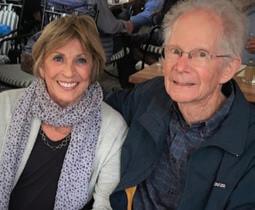
Longtime supporters John D. Baldeschwieler and Marlene R. Konnar have always been passionate about the Pasadena Symphony’s musical vitality and have launched, through a lead gift, the creation of the Pasadena Symphony’s Artistic Fund. This newly dedicated fund helps sustain the orchestra and provides mission critical resources for the orchestra’s musicians and conductors. Inspired by John and Marlene’s commitment, the donors below have stepped up with stretch gift to match their generosity. On behalf of all of the musicians of the Pasadena Symphony and POPS, we salute you.
Anonymous (2)
Mr. & Mrs. Richard Bisetti
Patricia Bruce
Gabrielle Bruveris
Anna Davalos
Lauren Davies
Mrs. Linda Flaherty
Mr. & Mrs. George Forbes
Barbara George
Nelson & Priscilla Gibbs
Barbara & Gary Grey
Jean Grinols
Qintao Gu
Mrs. Russell L. Hanlin
Yolanda Head
William Heinen
Larry & Mireya Jones
Judith Juhasz
Joanne Kennedy
Shirley Knuth
Linda and Bill Krantz
Linda Massey
Jeannette & Warren Martin
Heidi & Steve McLean
Candace Monroe
Rob Moore
Gaylord E. Nichols*
Cynthia & George Null
Linda O’Connor
Keiko Sugino-Decarvalho
Bernard & Joy Sullivan
Kay Kochenderfer Toomey & Frank Toomey
Scott Vandrick & Tony Foster
Xiomara & Joseph Velasquez
John Vogt
Bob Willet
Susan Williams
Jill Wondries
*Deceased
The Pasadena Symphony Association brings great music to life. You can help ensure our mission lasts for the next generation through a planned gift that will make a lasting contribution to your orchestra. As a tribute to Jack and Edith Roberts, the Pasadena Symphony Association launched the John D. and Edith M. Roberts Legacy Society to support building legacies through planned gifts.
GIFTS NOW:
Appreciated Securities
IRA Charitable Rollover Gifts
Appreciated Property
GIFTS LATER: Bequest
Gift of Retirement Plan Assets
Endowment Gift
Listed as of September 30, 2023
Gertrude H. Bowlby*
Marlene R. Konnar & John D. Baldeschwieler
Gloria & Cleveland Crudgington
Georgianna Bray Erskine
Chip Fairchild
Dr. Alan Fisher
Dr. Marylou Ingram*
Gaylord E. Nichols
Elise Mudd Marvin*
Gloria & Roger Mullendore
Beebe Nuetzman
Dr. John R. & Edith M. Roberts*
Virginia N. Russell*
GIFTS THAT PAY INCOME:
Charitable Gift Annuity
Helen & Marie Saladra*
Margaret H. Sedenquist*
Laurie & Robert Silton
William & Barbara Steinwedell
Kay Kochhenderfer Toomey & Frank Toomey
Constance G. Zahorik*
*Deceased
To find out more about the Artistic Fund or joining the Conductor’s Circle or Legacy Society, call Kevin Batton at (626) 793-7172, ext 27, or visit pasadenasymphony-pops.org/give.

Pam & Jerry Ackrich
The Adamick Family
Janet Wendy Anderson
Patty & John Anderson
Brenda Baity & Scott Long
Alison Bjorkedal & Phil Yao
Laurel Bossi
Ronald Bossi
MaryAnn Bozek
Nancy & Martin Chalifour
Panela & David Conley
The Pasadena Symphony lost one of our family this summer when our Chief Operating Officer, Drew Flaherty passed away suddenly. Drew was the heartbeat of the organization and the driving force behind our operations for the past decade. We will always remember Drew as a warm, kind, fun person who was a stalwart in the California orchestral community. His loss is deeply felt, but his love for music and passion for togetherness and laughter lives on. Drew’s family is honored by those who have given in his memory.
Joanne Freed & Richard C. Mendelson
The Girard Family
Jeff Hacker
Nadine Hall
Judith Henderson
Matthew Henning
Elizabeth Hentz
Sara Hiner
Judd Hollander
Cyndee Howard
Diane & Michael Conley-Hinchey
Jana & Steve Cooley
The Dickson Family
Valerie DiLoretta
Jim & Marge Dixon
Patrick Dowling
Eli & Jean Essa
Dr. Alan Fisher
Peter & Linda Flaherty
Jonathan Flaksman

Deborah R. & Bradley D. Howard
Chuck Jones
Andrew Kassan
Joanne Kennedy
Ray & Cinty Kepner
Kay Kochenderfer-Toomey & Frank Toomey
Judy & Brad Kolb
Marlene R. Konnar & John D. Baldeschwieler

Aimée Kreston & Andrew Picken
Cynthia Leary
Arlene Lesh
Marisa McCarthy
Shannon McCarty
Priscilla McClure
Rebecca Meneses
Jacqueline A. Miller
Rob Moore
Judith Moss
Sandy Norton
Thomas Porro
Rosemary & Robert Risley
Kenneth Shapiro
Barbara Porro-Smith
Erik Rynearson
Jamie Shaheen
Timothy Stang
Season Straaberg
Scott Vandrick & Tony Foster
Christine Wagner
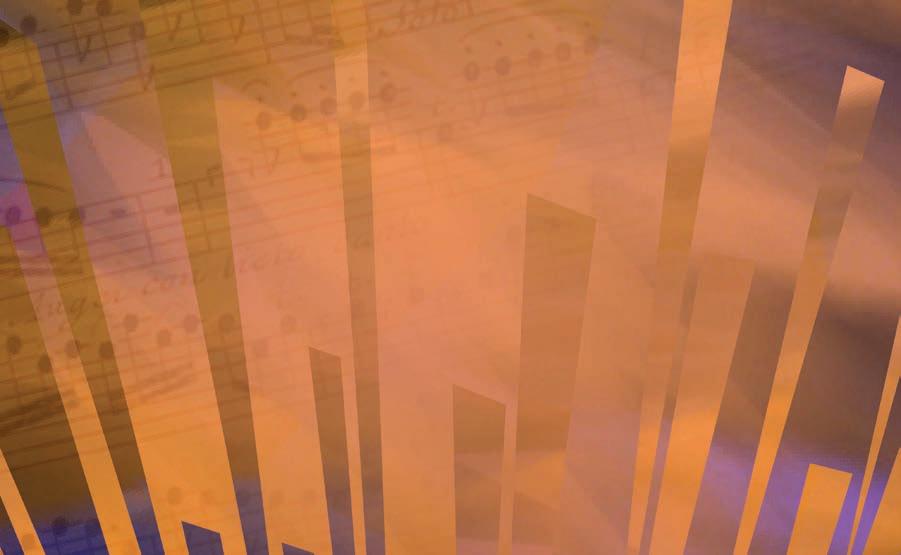
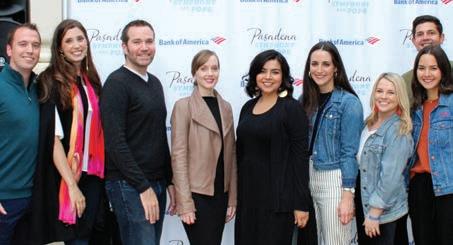















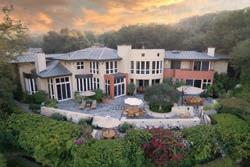



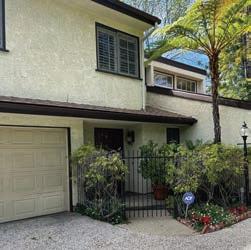








Stay
Whatever












Passionate about pianos since 1928
Pasadena Symphony & Pops Official Piano Supplier
The USA 's Only 8X N.A.M.M. Top 100 Award Winner
Steingraeber • Grotrian • Mason & Hamlin• Estonia
Baldwin• Schulze Pollmann •Ritmuller• Hardman
Brodmann•Roland• Dexibell• One Smart• Casio
Pre-owned Steinway•Yamaha• Kawai
Burbank Santa Ana
323 South Front St. 2800 North Main St. 818-954-8500 714-432-1100

Pasadena (Factory Outlet & Clearance Center) 2084 East Foothill Blvd. 626-229-0999

www.hollywoodpiano.com
















Inspired by classical themes, pop culture and her experience in the fashion world, designer Julia Wong creates spaces that are dramatic yet timeless. / by
ROGER GRODY /IINTERIOR DESIGNER JULIA WONG navigated ever-evolving trends while working in the fashion industry, an experience that also fostered her appreciation for timeless qualities and aesthetics. As principal designer at Julia Wong Designs, she brings those sensibilities to luxury homes throughout Southern California.
Reflecting on her seamless transition from fashion to interior design, Wong says, “Interiors are more permanent and incorporate my love of architecture, but involve the same emphasis on textures, colors and proportion as clothing design.”
She notes that the discipline and multitasking required in the fashion industry—the rigors of creating six to eight new collections every year— prepared her well for her new career and the demands of high-profile clients.




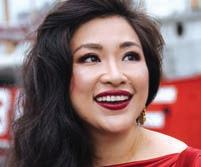




Wong's extensive travels, particularly during her tenure with designer John Galliano at Dior, helped shape her sensibilities for interior design. “Hotels have long been influenced by residential environments. Now, interior designers draw inspiration from hospitality,” she observes.
As for her own design philosophy, Wong says, “I enjoy using authentic materials that are timeless, and welcome a juxtaposition of traditional and modern elements.” Her signature style incorporates a European aesthetic combined with a touch of American pop culture.
Arches, curves and monochro-


matic color palettes continue to prevail in Southern California, but, Wong cautions, “trends are more complex than in the past. People want aesthetics to be timeless, but also fresh.”
Varied textures, including stone with fluting or edging details, are popular, and the all-white kitchen is evolving. Wong cites Africaninspired earth tones and occasional bursts of color as effective complements to the enduring neutral backdrop throughout the home.
Wong uses dramatic lighting fixtures as compelling focal points. She admires the products
of Jonathan Browning Studios in San Francisco and L.A.-based Fuse Lighting, but also appreciates Murano glass from Venini. “Holly Hunt furniture works very well with my aesthetic," she says. "For chinoiserie-inspired concepts, my go-to fabrics are Rubelli.”
When working with clients, Wong takes her role as listener seriously; she pays close attention to how they live in their current homes, their lifestyle, and what styles they view positively. “We then begin visualizing the design, but only after conducting space-planning,” says Wong. She insists that if the spatial



This spring, CAP UCLA welcomes today’s most searching, innovative and compelling artists.
VISIT
The UCLA Nimoy Theater (opened in September 2023) Royce Hall and The United Theater on Broadway.
EXPLORE
A genre-defying lineup of music, dance, theater and literary arts.

SEASON HIGHLIGHTS

> Urban Bush Women > Molly Joyce and Jerron Herman > Third Coast Percussion
> Flamenco Vivo Carlota Santana > Ronnie Burkett > Alfredo Rodriguez > yMusic > Kronos Quartet > Meshell Ndegeocello > Luciana Souza > LADAMA

cap.ucla.edu/2023–24
AND MANY MORE!
 Kronos Quartet by Nación Imago
Kronos Quartet by Nación Imago
distribution does not work, the artistic expressions are irrelevant.
“One of the great things about working in a creative community such as L.A. is that clients are not afraid of trying new colors, shapes or materials,” says Wong—but she also acknowledges occasional challenges. “With a strong, individualistic client, you have to execute a home that truly reflects the personality.”
At a 12,000-square-foot landmark estate in Bel-Air—whose previous owners included Charlie’s Angels actress Jaclyn Smith and socialite Kathy Hilton—Wong created furniture with rich fabrics for an updated Hollywood glamour. The tearoom at the Hôtel de Crillon in Paris was her inspiration for the light-flooded conservatory.

For their contemporary Manhattan Beach weekend getaway, clients sought a warm modernism with Zen elements, a departure from their more traditional primary residence.

A clean Japanese aesthetic was the inspiration; the design showcases the clients’ extensive art collection. Julia Wong Designs, 818.223.8886 juliawongdesigns.com








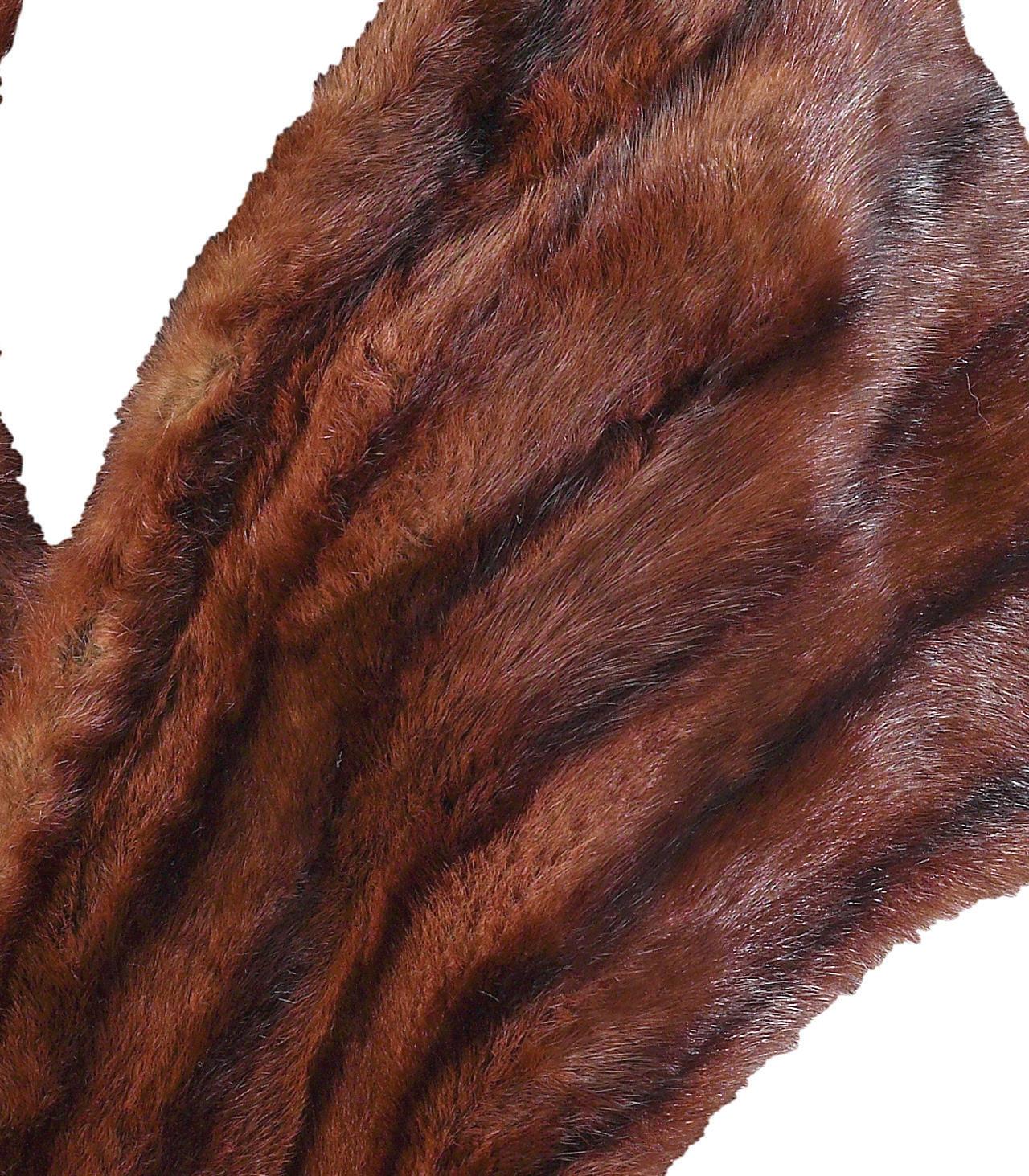



















GRANT GERSHON, conductor ANA MARÍA MARTÍNEZ, soprano
MELODY MOORE, mezzo-soprano
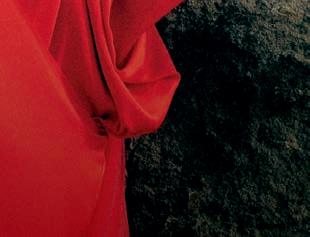
SATURDAY, JUNE 8 AT 2PM | SUNDAY, JUNE 9 AT 7PM

SEAN PANIKKAR, tenor
PEIXIN CHEN, bass
100 singers, orchestra



GIUSEPPE VERDI Requiem

Thunderous rhythms, sublime melodies, and rhapsodic solo passages express both the heights of salvation and depths of damnation in this epic and panoramic masterpiece. A performance of Verdi’s Requiem by the Grammy® Award-winning LA Master Chorale is not to be missed.

 Courtney Taylor SOPRANO
Courtney Taylor SOPRANO

Downtown’s Baar Baar showcases a playful contemporary approach to India’s diverse flavors and techniques.
/ by ROGER GRODY /
There,s no denying Indian food’s crave-worthiness, and every so often an inventive chef reinterprets the ancient cuisine, integrating European techniques and creativity that resonate in Los Angeles. Last year, chef/restaurateur Sujan Sarkar opened Baar Baar, the West Coast branch of a gastropub in Manhattan’s East Village, downtown.
Baar Baar occupies a handsome space in the aqua glass-ensconced Watermarke Tower, previously home to Faith & Flower. Curvy booths and crystal chandeliers infuse the space with glamour; a 50-foot quartzite bar heightens the drama. A pair of Indian women with intense eyes, peer over the lively scene from a mural by artist Jessica Kollar.
Sarkar, a native Indian but veteran of top London kitchens, and founder of multiple restaurants in the U.S.,
PHOTOS NEIL JOHN BURGER2023/2024 SEASON

Firebird
Possokhov | Stravinsky
Serenade
Balanchine | Tchaikovsky
Pasadena Civic Auditorium
May 11 2:00 pm & 7:30 pm
Redondo Beach
Performing Arts Center
May 25 2:00 pm & 7:30 pm
Royce Hall at UCLA
June 1 2:00 pm & 7:30 pm
showcases the versatility of regional Indian cooking through a modern multicultural lens. Mixing centuries-old traditions with contemporary elements and unconventional ingredients, it's a culinary adventure geared to the adventurous.
Ease into a meal with a selection of chutneys, cheese-and-jalapeño naan, or fresh oysters with guava-chili granita.
Stylish cocktails are inspired by Bollywood cinema. South Asian ingredients and fanciful presentations contribute to mixed drinks such as a Slumdog Millionaire; Lagaan, named for a 2001 musical, blends gin, Midori, honeydew melon, kale and egg white.
Cocktails reign, but the restaurant also offers a relatively extensive international wine list with selections that stand up to the assertive flavors.
Servings can veer to the

small side; larger parties may want to double-up on some items for sharing.
Cauliflower 65, a vegetarian play on a dish of fried chicken nuggets that is popular in southern India, includes pickled carrot pachadi and peanut thecha.
Delicate dahi puri, popular on the streets of Mumbai, are elegantly presented here on a bed of glistening black lentils. Crispy balls of paper-

thin dough are filled with mango and potato, topped with yogurt mousse and dusted with a chat masala with freeze-dried raspberry.
A crock of lamb keema—curried minced meat layered with potato mousse, a Hyderbadi-style dish from south-central India—is reminiscent of a British shepherd’s pie.
Paneer, the classic soft Indian cheese, is rolled into playful pinwheel cakes with a mixture of almonds, pistachio and garam masala; topped with red-pepper chutney, the pinwheels are plated in a pool of rich, tomatobased lababdar gravy worth mopping up with naan. It’s a signature dish.
Unctuous pork belly is lacquered with a pomegranate barbecue sauce
and topped with pickled plum and cracklings. The chicken tikka here involves an Indian cheese fondue, walnuts and summer truffle.
Birria tacos, a dish conceived exclusively for L.A., receive an Indian makeover with Kashmiri duck, pickled ginger and cheddar; they’re served with a bowl of addictive yakhni dipping sauce standing in for salsa.
Desserts, inspired by traditional Indian concepts but seamlessly westernized, include kerala achappam—a crispy confection topped with coconut panna cotta—or an Indian riff on an opera cake.
Baar Baar, 705 W. 9th St., downtown, 213.266.8989, baarbaarla.com
 JOHN NEIL BURGER AND, BELOW, REGAN NORTON
Sweet potato chat and, below, mural at Baar Baar
JOHN NEIL BURGER AND, BELOW, REGAN NORTON
Sweet potato chat and, below, mural at Baar Baar






We’re
•
•
•
•
been working on optimizing the product, at incredibly high levels, for hundreds of years —we should be really proud of the art.
“For a symphony, people want to know, is the music a romantic comedy or is it a tragedy? What’s the theme? What’s the vibe?
‘Somebody conducts composer XYZ’ is not helpful to them.”
—Aubrey Bergauer
“So then, what is the problem? It’s time to optimize everything else around that product— that’s where we have so much opportunity before us.”
Those opportunities include maximizing a company’s website— “the most public-facing ambassador for the brand,” Bergauer says —and using regular English rather than arts terminology, such as “aria” in opera, to explain to first-time visitors what’s going on.






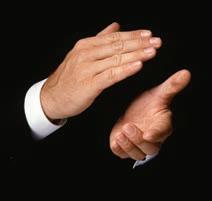









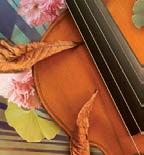


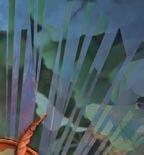


















Excerpts

Sun., April 28 4:00 pm
Sat., April 27 7:30 pm FIRST
www.verdichorus.org

“For a symphony, people want to know, is the music a romantic comedy or is it a tragedy? What’s the theme? What’s the vibe? ‘Someone conducts composer XYZ’ is not helpful to them.”
Offering discounts at the beginning of the season as an incentive to subscribe is better than last-minute flash sales. Newcomer-friendly experiences that are welcoming, dispelling the intimidation of the unfamiliar, optimize chances of retaining new patrons.
Bergauer’s efforts with L.A. Opera to retain firsttime visitors began in 2019 but were cut short by the pandemic in 2020. Nevertheless, she says, “They shared with me that already they were seeing results in the tens of thousands of dollars.”
Despite arts administrators’ concerns and media reports about the gloomy state of the performing arts since the pandemic, Bergauer says, “Growth is possible. I really think there’s a future where we ... have full houses, places abuzz with energy, all different kinds of people there.
“I believe our arts organizations can provide that,” Bergauer adds. “And hopefully, this book provides a path to help them plot that future.”





DROP DOWN MENU Table of app contents.
REGISTER
Stay arts-engaged, access past programs.

THE ESSENTIALS Acts, scenes, synopses, repertory and notes.
CONTRIBUTORS
Donors and sponsors who make it all possible—you!

NO RUSTLING PAGES, no killing trees . . . The new Performances program platform, accessed on any digital device, is among the more enduring innovations to have come out of the pandemic. The platform provides the programs for 20 Southern California performing-arts organizations, from the Los Angeles Philharmonic and Ahmanson Theatre to San Diego Opera, where the app made its debut.
The touchless platform provides cast and player bios, donor and season updates and numerous other
arts-centric features. Audiences receive a link and a code word that instantly activate the app; QR codes are posted, too.
Screens go dark when curtains go up and return when house lights come back on. Updates—such as repertory changes, understudy substitutions and significant new donations—can be made right up to showtime, no inserts necessary. Other features include video and audio streams, translations and expanded biographies.
For those who consider printed
SEARCH
Find whatever it is you want to know—easily.
SIGN IN
Link to your performing-arts companies and venues.
THE PLAYERS Bios and background for cast, crew and creators.
WHAT’S ON
What’s coming at a glance and ticket information.
programs to be keepsakes, a limited number, as well as commemorative issues for special events, continue to be produced. Collectibles!
Meanwhile, there is less deforestation, consumption of petroleum inks and programs headed for landfills. For the ecologically minded, the platform gets a standing ovation.
When theaters and concert halls reopened after their long intermission, the digital Performances was but one more reason for audience excitement. Activate your link and enjoy the shows. —CALEB WACHS












